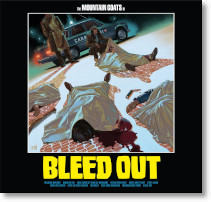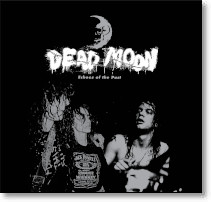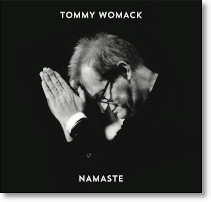Latest
2025
Jan
2024
Dec
Nov
Oct
Sep
Aug
Jul
Jun
May
Apr
Mar
Feb
Jan
2023
Dec
Nov
Oct
Sep
Aug
Jul
Jun
May
Apr
Mar
Feb
Jan
2022
Dec
Nov
Oct
Sep
Aug
Jul
Jun
May
Apr
Mar
Feb
Jan
2021
Dec
Nov
Oct
Sep
Aug
Jul
Jun
May
Apr
Mar
Feb
Jan
2020
Dec
Nov
Oct
Sep
Aug
Jul
Jun
May
Apr
Mar
Feb
Jan
2019
Dec
Nov
Oct
Sep
Aug
Jul
Jun
May
Apr
Mar
Feb
Jan
2018
Dec
Nov
Oct
Sep
Aug
Jul
Jun
May
Apr
Mar
Feb
Jan
2017
Dec
Nov
Oct
Sep
Aug
Jul
Jun
May
Apr
Mar
Feb
Jan
2016
Dec
Nov
Oct
Sep
Aug
Jul
Jun
May
Apr
Mar
Feb
Jan
2015
Dec
Nov
Oct
Sep
Aug
Jul
Jun
May
Apr
Mar
Feb
Jan
2014
Dec
Nov
Oct
Sep
Aug
Jul
Jun
May
Apr
Mar
Feb
Jan
2013
Dec
Nov
Oct
Sep
Aug
Jul
Jun
May
Apr
Mar
Feb
Jan
2012
Dec
Nov
Oct
Sep
Aug
Jul
Jun
May
Apr
Mar
Feb
Jan
2011
Dec
Nov
Oct
Sep
Aug
Jul
Jun
May
Apr
Mar
Feb
Jan
2010
Dec
Nov
Oct
Sep
Aug
Jul
Jun
May
Apr
Mar
Feb
Jan
2009
Dec
Nov
Oct
Sep
Aug
Jul
Jun
May
Apr
Mar
Feb
Jan
2008
Dec
Nov
Oct
Sep
Aug
Jul
Jun
May
Apr
Mar
Feb
Jan
2007
Dec
Nov
Oct
Sep
Aug
Jul
Jun
May
Apr
Mar
Feb
Jan
2006
Dec
Nov
Oct
Sep
Aug
Jul
Jun
May
Apr
Mar
Feb
Jan
2005
Dec
Nov
Oct
Sep
Aug
Jul
Jun
May
Apr
Mar
Feb
Jan
2004
Dec
Nov
Oct
Sep
Aug
Jul
Jun
May
Apr
Mar
Feb
Jan
2003
Dec
Nov
Oct
Sep
Aug
Jul
Jun
May
Apr
Mar
Feb
Jan
2002
Dec
Nov
Oct
Sep
Aug
Jul
Jun
May
Apr
Mar
Feb
Jan
2001
Dec
Oct
Sep
Aug
Jul
Jun
May
Apr
Mar
Feb
Tuesday, August 30, 2022
Daily Log
Saw this quote from Theodor Adorno in a Facebook meme today:
People have so manipulated the concept of freedom that it finally boils down to the right of the stronger and richer to take from the weaker and poorer whatever they still have.
Monday, August 29, 2022
Music Week
 |
 |
 |
 |
 |
 |
 |
Expanded blog post, August archive (done).
Tweet: Music Week: 43 albums, 7 A-list,
Music: Current count 38595 [38595] rated (+0), 52 [52] unrated (+0).
This is the last Monday in August, so wraps up the August archive (link above). I'll do the indexing later, but for now, the count for the five-week month is +212 rated, -25 unrated. Latter number failed to drop this week because I got a big package of fall releases from Matt Merewitz. All of the pending promos in my queue have September or October release dates. I jumped the gun a couple times below, but generally held myself back.
Two notable, relatively young jazz musicians died last week: Jaimie Branch (39, trumpet/vocals), and Joey DeFrancesco (51, organ). The latter is survived by his father, another organ player, Papa John DeFrancesco. The Branch list will direct you to a couple of A- live albums, but misses the side-credits, which include A- work with James Brandon Lewis, Dave Rempis, Rob Mazurek, and Heroes Are Gang Leaders (Lewis again, but worth noting in their own right).
Also passed last week was producer Creed Taylor (93). He started at Bethlehem Records in the 1950s, headed up ABC's Impulse! label during its 1960s heyday, and ran his own CTI label in the 1970s (results there were mixed, but the 1970s were a tough decade for above-ground jazz).
The Wichita Eagle finally published an obituary for Dotty Billings -- I wrote a bit about her a couple weeks ago. It's a pretty deep survey of a remarkable life. We were fortunate to have known her, and counted her a friend.
Christian Iszchak has published another of his excellent An Acute Case consumer guides. As usual, I'm struggling to keep up. Phil Overeem published a remarkable one-record-per-year list on Facebook. That steered me to the Dead Moon comp, and convinced me to give Tommy Womack some deeper listening. Phil mentions recent reading of a Womack memoir, but as far as I can tell, doesn't specify: Dust Bunnies (2018) seems to be the most recent, but there's also Cheese Chronicles (2008). (I haven't done an album dive on his early Government Cheese group, but I have a 2-CD compilation from 2010 as a high B+.)
Now I'm wondering if I didn't shortchange Loudon Wainwright III's Years in the Making. It's hard to listen to these long multi-CD sets by streaming. Besides, the box violates my album cover formatting standards, but it's more or less at the same level. On the other hand, it's an odds & sods compilation, whereas the Dead Moon and Tommy Womack 2-CD sets are true career summaries.
I wrote another fairly long Speaking of Which last week, posted late last night. It's been suggested that I should break the long paragraphs up, but that runs against my formatting concept. Also the fact that I'm reading it in my text editor instead of on the browser screen, but mostly that I'm exhausted by the first pass and never feel like taking the extra time for an edit. (On the rare occasions when I do, I inevitably wind up changing lots of things. E.g., I just added a line to the Madeleine Ngo item: "Economics has long prided itself on being 'the dismal science,' but its attraction to sadists is less often recognized.")
I should also note that I've changed the website home page to do an automatic redirect to the blog. Another reader request, and a fairly easy one to do. I should probably write a new explainer page.
Only got the new router half-installed: I was gratified to at least get the wired machines working, but still need to work on the wireless and other details. Will resume work on that after this is posted.
Still feeling pretty awful. At east I'm fairly functional, but it's hard to get enthusiastic about anything these days. Summer has gone by in a blur, which is probably a good thing, since (using 100°F days as a standard) this is easily the 4th hottest summer since we moved here in 1999. (Could rank higher if we used 90°F days, or average highs, or average temperature.) Still not done: September usually doesn't cool off much until the last week, and maybe not then. Of course, it's not all weather, and not all pain. At least I have lots to do -- something I have a knack for turning into frustration.
In my article search, I noticed this piece -- Men have fewer friends than ever, and it's harming their health. It doesn't quite describe me, but I've been pretty isolated since the mid-1960s, and most of the time I've gotten by ok, so it's hard to tell. But I can see how isolation has increased -- that was the point of Robert Putnam's 2000 book, Bowling Alone -- and the only mitigating factor I've seen since then has been the rise of virtual friendships through shared interests (probably most of the people I interact with most days).
New records reviewed this week:
- Aitch: Close to Home (2022, Capitol): [r]: B+(*)
- JD Allen: Americana Vol. 2 (2022, Savant): [cd]: B+(**)
- Roxana Amed: Unanime (2022, Sony Music Latin): [cd]: B+(***) [09-16]
- Chouk Bwa & the Ångströmers: Ayiti Kongo Dub #1 (2022, Bongo Joe, EP): [bc]: B+(*)
- Chronophage: Chronophage (2022, Bruit Direct Disques): [bc]: B
- Stella Donnelly: Flood (2022, Secretly Canadian): [sp]: B+(**)
- Matthew Fries: Lost Time (2021 [2022], Xcappa): [cd]: B+(**) [09-23]
- Phoebe Green: Lucky Me (2022, Chess Club): [sp]: B+(**)
- Lauran Hibberd: Garageband Superstar (2022, Virgin): [sp]: B+(***)
- Julia Jacklin: Pre Pleasure (2022, Polyvinyl): [sp]: B+(*)
- Calvin Keys: Blue Keys (2022, Wide Hive): [sp]: B+(**)
- Kyle Kidd: Soothsayer (2022, American Dreams): [sp]: B+(*)
- Kokoroko: Could We Be More (2022, Brownswood): [sp]: B
- Clemens Kuratle Ydivide: Lumumba (2021 [2022], Intakt): [sp]: B+(*)
- Steve Lacy: Gemini Rights (2022, RCA): [sp]: B
- The Mountain Goats: Bleed Out (2022, Merge): [sp]: A-
- Lucas Niggli/Matthias Loibner: Still Storm (2022, Intakt): [sp]: B+(**)
- Panda Bear & Sonic Boom: Reset (2022, Domino): [sp]: B+(**)
- Silvan Schmid: Augmented Space (2019-20 [2021], Ezz-Thetics): [bc]: B
- Scorpion Kings X Tresor: Rumble in the Jungle (2020 [2021], Blaqboy): [sp]: B+(***)
- Superorganism: World Wide Pop (2022, Domino): [sp]: B+(***)
- Tank and the Bangas: Red Balloon (2022, Verve Forecast): [sp]: B+(***)
- WA Records: If You Fart Make It Sound Good (2022, WA): [bc]: B
- Loudon Wainwright III: Lifetime Achievement (2022, StorySound): [sp]: A-
- Miguel Zenón: Música De Las Américas (2022, Miel Music): [cd]: A-
Recent reissues, compilations, and vault discoveries:
- Brasil Novo ([2022], Música Macondo): [bc]: B+(**)
- Tommy Womack: 30 Years Shot to Hell: An Anthology (1987-2017 [2022], Schoolkids, 2CD): [sp]: A-
Old music:
- Dead Moon: Echoes of the Past (1988-2004 [2006], Sub Pop, 2CD): [r]: A-
- Esquire's All American Hot Jazz Sessions (1946-47 [1988], RCA): [cd]: B+(**)
- Michael Jon Fink: A Temperament for Angels (2004, Cole Blue Music, EP): [cd]: B+(*)
- Jim Fox: The City the Wind Swept Away (2004, Cold Blue Music, EP): [cd]: B+(*)
- T.D. Jakes: Praise & Worship (1978-98 [2008], Verity/Legacy): [cd]: B+(**)
- Draco Rosa: Vino (2008, Phantom Vox): [sp]: B
- Swing-Groups: 1931 to 1936 [Robert Parker's The Golden Years in Digital Stereo] (1931-36 [1987], ABC): [cd]: B+(**)
- The Three Johns: Eat Your Sons (1990, Tupelo): [lp]: B+(**)
- Vickie Winans: Praise & Worship (2003-06 [2008], Verity/Legacy): [cd]: B-
- Loudon Wainwright III: Surviving Twin (2017, StorySound): [sp]: B+(*)
- Loudon Wainwright III: Years in the Making (1973-2018 [2018], StorySound, 2CD): [sp]: B+(***)
- Tommy Womack: Stubborn (2000, Sideburn): [sp]: B+(**)
- Tommy Womack: Circus Town (2002, Sideburn): [sp]: A-
- The Tommy Womack Band: Washington D.C. (2002 [2003], self-released): [sp]: B+(***)
- Tommy Womack: Namaste (2016, self-released): [sp]: A-
Added grades for remembered lps from way back when:
- The Negative Band: Karlheinz Stockhausen: Short Wave (1975, Finnadar): B+
Unpacking: Found in the mail last week:
- Dan Cavanagh and James Miley With John Hollenbeck: Another Life (S/N Alliance) [10-21]: cdr
- Jeff Denson/Romain Pilon/Brian Blade: Finding Light (Ridgeway) [09-23]
- Dave Douglas Quintet: Songs of Ascent: Book 1: Degrees [10-07]
- Joe Fiedler: Solo: The Howland Sessions (Multiphonics) [11-04]
- Noah Garabedian: Consider the Stars Beneath Us (Outside In Music) [09-23]
- Yosef Gutman Levitt: Upside Down Mountain (self-released) [09-30]
- Darryl Harper: Chamber Made (Stricker Street) [10-28]
- Olli Hirvonen: Kielo (Ropeadope) [11-11]
- Sana Nagano: Anime Mundi (577) [10-28]
- Timothy Norton: Visions of Phaedrus (Truth Revolution) [11-04]
- Rick Rosato: Homage to Be (self-released) [10-14]
- Eric Vloeimans & Will Holshouser: Two for the Road (V-flow/Challenge) [09-01]
Sunday, August 28, 2022
Speaking of Which
OK, here's another week. Apologies for the occasional repetition, and less-than-ideal sorting. I keep finding more shit, and eventually it stinks up the place. As I recall, Warren Wake used to call this sort of thing "shovelware."
Wrapping up, I saw this tweet from Steve M. (who, if you ever look at Twitter, you should be following):
Fox News is the worst thing that's happened to America in my lifetime. 9/11 doesn't even come close.
That was attached to a Fox segment where the hosts were discussing "a Missouri school board plan to allow teachers to spank students with parental consent." But it could have referred to damn near everything they do. They're evil, and millions of people have become meaner and dumber for exposing themselves to their shameless propaganda.
Steve M's blog is also worth following. I don't pay very close attention to primary elections, but he tells me pretty much all I need to know (and then some). Recent stories:
- [08-07] Republicans really think issues can't hurt them.
- [08-08] Ron DeSantis, the most arrogant candidate in America.
- [08-10] Trump is a sick, needy guy, part XCVIII.
- [08-10] The conspiracy to keep right-wingers paranoid and stupid.
- [08-11] When the violence escalates, Republicans will just deny it's real.
- [08-12] Republicans attack democracy and the rule of law, and David Brooks blames everyone but the perpetrators.
- [08-13] Republican stochastic terrorism is the new assault-weapon mass murder.
- [08-15] New York Times: The GOP is a big-tent party that welcomes both rude FBI-bashers and polite FBI-bashers.
- [08-19] Threatening federal agents: It's a felony and a campaign stunt!
- [08-20] Mitch McConnell couldn't have put the Trumpiest toothpaste back in the tube.
- [08-23] That new poll confirms everything I've said about a Cheney 2024 run -- and shows that the parties aren't equally extreme.
- [08-24] Can Anybody Find Republicans Somebody to Love?
- [08-24] And in other election news about extreme Republicans . . .
- [08-25] Republicans: Glad to be unhappy?
- [08-26] The worst people, aided and abetted by the worst people.
- [08-27] Why does the New York Times keep telling us that GOP extremists are chastened when they aren't?
He also writes some at Crooks & Liars:
- [08-25] Republicans Going Off the Deep End, Part Infinity.
- [08-28] Shamelessness -- It's Every Republican's Superpower.
Also from Rick Perlstein (also worth following), our foremost historian of the US right:
Fed chair Jerome Powell: we need "some pain." In other words (to simplify), for people who work for wages, to help those who live on investments. When I wrote the part of my 1976-80 book REAGANLAND on Volcker doing that in 1979, I almost cried.
When Obama won in 2008 and I saw that Volcker was his top economic adviser, I cringed. Volcker became Chair of the President's Economic Recovery Advisory Board (until 2011, when he resigned and was replaced by former GE CEO Jeffrey Immelt). Perhaps even more consequential for Obama were economists Lawrence Summers and Jason Furman, who got a mention below.
I've also seen tweets of Senators Lindsey Graham and Josh Hawley threatening riots if Donald Trump is charged and arrested. One tweet, by Tim Hannan, asks: "Is that a threat? Or are you insinuating someone should get away with crimes because there is a threat of violence? Or are you finally admitting Donald Trump can cause riots?"
Dean Baker: [08-22] Bernie Sanders Makes the Washington Post Oped Page: We Don't Need Government-Granted Patent Monopolies to Finance Drug Research: I followed the link to Caleb Watney/Heidi Williams: [08-22] Drug pricing reforms can hurt innovation. Here are 3 ways to prevent that. But one of those three ways proposes extending monopoly rights, so you're better off sticking with Baker, who's pushed this issue hard for many ears now. Moreover, I think it could be pushed harder than even Baker does. I'd say that all drug development should be publicly funded, that the science developed should be shared, and that the testing should be open sourced. I'd also point out that while it would be cheaper and more productive in the long run for the US to replace all private funding, drugs are by their nature an international product. One could negotiate international agreements to share much of the cost of development. The result would be more competition than at present, including manufacturing, which would no longer be tied to patent rights. Also:
- Alexander Sammon: [08-25] It's Time for Public Pharma. This focuses more on the manufacturing end than on r&d. My own thinking is that if you can provide licensing standards (FDA approval) agreeable to most nations, you can freely import from any nation which meets those standards, and that will provide a lot of manufacturing competition where currently we have very little. Of course, if the private sector fails to compete, I wouldn't mind the public financing of new and competitive companies to fill the gap. I'm thinking they could be set up as employee-owned, to avoid the bureaucratic overhead of public ownership.
Zack Beauchamp: [08-24] How do we know who's winning in Ukraine? The real answer is that there is no winning in this or any other war. There is a map if you think territory matters much: Russia has consolidated gains in the east and southeast, north of Luhansk, and west of Donetsk to Kherson, linking up the breakaway regions of Crimea and Donbas. Early in the war, Ukrainian forces concentrated on defending the major cities of Kyiv and Kharkiv, offering little resistance on the southern front, as Russian forces invaded from Crimea. The move to expand west from Donbas didn't happen until later, after Russia gave up on Kyiv, and refocused on Mariupol. The map shows Ukrainian counteroffensives, which have gained a small amount of ground east of Kharkiv and north of Kherson, but the current map isn't much different from one 2-3 months ago. It's hard to see much ground changing hands from here on, but the destruction of fighting a stalemated war could increase. US weapons shipments to Ukraine have shifted to missiles and drones that can attack sites well beyond the fronts (potentially risking attacks inside pre-war Russia -- already started in disputed Crimea). Russia still has the ability to attack anywhere in Ukraine, even as far removed from the battle lines as Lviv and Odesa. Of course, the map doesn't account for lives ended or maimed, for the destruction of infrastructure and other property, the dislocation of millions of people, the economic costs, for Russia the costs imposed by severe sanctions, which also redound to hurt the rest of the world economy, and for the US and its "allies" many billions of dollars that could have been used for real problems but are being wasted on unnecessary war, one that will only harden feelings and darken prospects for many years to come. So, yes, it's hard to tell who's winning, because that's the wrong question.
- Anatol Lieven: [08-25] Six months after Russian invasion, a bloody stalemate, a struggle for peace. Lieven also wrote [08-24] Putin fairly deconstructed: a man, a myth, the state: a review of Philip Short's 800-page biography, Putin: His Life and Times.
- Masha Gessen: [08-26] The Mysterious Murder of Darya Dugina. I doubt the "mysterious" would have occurred to me, no matter how obscure or baffling the evidence was: when a warmonger like Dugina is killed, the karma is glaring. More here on her more famous father, whose own star ascends higher from his daughter's martyrdom (from his eulogy: "She lived for our victory and died for it -- for our Russian victory, our truth").
- Caroline Houck: [08-23] Everything we actually know about the Moscow car bombing. The car bomb killed Darya Dugina, who is the daughter and accomplice of political ideologue Aleksandr Dugin, who has been prominent in developing an intellectual rationale for Putin's embrace of Russian nationalism. How much actual influence he has is disputed, but he has been a vocal supporter of Putin's war in Ukraine. To get the scoop, Houck interviews Brian Taylor, who doesn't seem to know any more than the rest of us.
- Ellen Ioanes: [08-28] Six months in, how are sanctions impacting Russia's economy? Serious disagreement on this, with one always suspecting that reports of calamity are rooted more in wishful propaganda than in fact. (Krugman's spin about Russia's trade surplus is an example. Another is this report [08-29] that Cracks emerge in Russian elite as tycoons start to bemoan invasion.)
- Dawn Stover: [08-19] Deteriorating situation at Ukraine's largest nuclear power plant.
- Robert Wright: [08-24] The murder of Daria Dugina is a wild card in a non-zero-sum conflict. My only quibble is that it's not just possible for war to be a less-than-zero-sum game, it's inevitable. Yet time and again, we see belligerents arguing that sunk costs have to be redeemed, lest they be sacrificed in vain, as if any other outcome was possible.
Tom Boggioni: [08-28] Truth Social is headed for bankruptcy. Also:
- Igor Derysh: [08-26] "Trump never pays his bills": Truth Social reportedly stiffs contractor amid financial "disarray".
- Peter Wade: [08-28] Little Revenue, Lots of Debt: Trump's Truth Social Faces Bleak Financial Future.
Kevin Carey: [08-24] Biden's big new student loan forgiveness plan, explained. This will be a test of whether an eminently reasonable centrist compromise can survive politically, where the left position is that education, at least in state-supported colleges and universities, should be a right as far as a student wants to take it, and the right position is that people who can't afford to pay for higher education should remain in penury until the last dime of their debt is accounted for. As a practical matter, the right position is untenable, which is why we have a hopeless maze of rules and programs for offering and (in some cases) excusing debt, which several generations of students have been forced into as state austerity has relentlessly fobbed off public investment in favor of private debt. For someone my age, college was mostly affordable, debt was minimal (but I still hated every bit I had to pay off, and not just because I got screwed out of a degree), and there were decent-paying alternative careers (I managed). Later generations, however, faced fewer options, and more obstacles, and the result is that most of this country suffers under the dead weight of politically-induced debt, which is possibly the single main reason generations after mine have had to face declining opportunities -- and nowadays even declining life expectancies. My big complaint about this plan is that it doesn't address the present and future problem of more people having to take on ridiculous debt just to get the bare education they need -- and we need for them to have -- not just to prosper but to survive. Beyond that, sure, the limits are too low, and the means-testing is discriminatory and provocative, but this is a meaningful step, one we have to defend, one that we must because the arguments we're going to be hit with are seductively wrong and ultimately destructive, and have to be overcome to make any further progress.
- Zachary D Carter: [08-25] What the Critics of Loan Forgiveness Are Forgetting: "Functioning societies eliminate burdensome debt all the time."
- David Dayen: [08-25] One Way Out of the White House Political Box on Student Debt.
- Sarah Jones: [08-24] Biden's Student-Loan Forgiveness Is Good. It Could Have Been Revolutionary.
- Paul Krugman: [08-25] The Two Big Questions About Student Debt Relief: "First, will it significantly increase inflation? The answer, if you do the math, is a clear no. Second, is it a good policy? The answer should be: Compared to what?"
- Branko Marcetic/Ben Burgis: [08-27] Student Debt Relief Was Never Supposed to Happen. "We've come a long way from the era where the automatic reflex of liberal and other tastemakers was to dismiss any idea coming from the Left." As I've been saying for some time now, all the serious, workable ideas are on the left. And we've become increasingly aware that the neoliberal salves peddled by Clinton and Obama simply failed to deliver results for their voters. When the Biden administration looks left, it's not because they want to, but because they're under a lot of pressure to actually deliver on their promises, and that means they have to come up with solution which actually address the problem. (Needless to say, they still have room for improvement.)
- Madeleine Ngo: [08-25] Will student loan forgiveness make inflation worse? Opponents (or maybe I should say haters?) are grasping at straws here. The first two cited are disgraced economists Lawrence Summers and Jason Furman, who seem to regard anything that doesn't increase economic pain as bad. Economics has long prided itself on being "the dismal science," but its attraction to sadists is less often recognized.
- Timothy Noah: [08-24] Biden's Student Debt Relief Program Is Excellent, but Student Loans Suck to Begin With.
Steve Coll: [08-27] A Year After the Fall of Kabul: Coll wrote the book on Afghanistan (Ghost Wars: The Secret History of the CIA, Afghanistan, and Bin Laden, From the Soviet Invasion to September 10, 2001) before everyone else did and he had to write another (Directorate 5: The CIA and America's Secret Wars in Afghanistan and Pakistan), so he's the obvious choice for this assignment. However, his subhed misses the point: "For the Biden Administration, supporting the Afghan people without empowering the Taliban is the foreign-policy case study from hell." First, the Taliban are already in power, so the worry about "empowering" them is pure crap. Second, the only way the US can "support the Afghan people" is through the Taliban. Anything else is war, and the last thing the Afghan people need is more war. The only conclusion possible from US policy since the Taliban seized power is that the US doesn't want -- and probably never wanted -- to help Afghans. Otherwise, they'd put their bruised egos aside and offer something respectful and constructive.
- Rozina Ali: [08-24] The Afghan Women Left Behind: "After the Taliban seized power in Afghanistan, a U.S. organization shut down the country's largest network of women's shelters. Its founders think that it made a huge mistake."
- Responsible Statecraft: [08-25] Symposium: Was withdrawing from Afghanistan the right thing to do? They polled 20 "scholars," who with a few exceptions respond with a lot of hemming and hawing. Withdrawing was the only right thing the US did in Afghanistan -- not that they even did that right, but after pretending that everything's hunky dory for 20+ years, it's hard to just turn on thinking clearly.
Ryan Cooper: [08-23] The Big Bet on Natural Gas Is Blowing Up in the World's Face: "It's not clean, it's not cheap, and it's not a bridge fuel to anyplace good." Still, the article is mostly about Russian gas, which has become a political chip in the Ukraine War, which as is so often the case is used to reinforce another separate point. Sure, gas is not clean -- burn it and you get carbon dioxide and water, don't and you're leaking a more potent greenhouse gas -- but it's a lot cleaner than coal, both in its energy equation and in the impurities that also get released by burning it. That led to the "bridge fuel" argument, which made more sense in the 1990s, when wind and solar were more expensive than they are now. I'll have more to say about this under Krugman, below.
David Dayen: [08-19] The Real Inflation Reduction Acts. On the Inflation Reduction Act: "The policies here are fine, but too much of Democratic political positioning involves concealment, and I think it generates natural but unnecessary skepticism." On the other hand, he offers the Ocean Shipping Reform Act of 2022 (OSRA 2022) as an example of a law which lowers prices by increasing competition.
Igor Derysh: [08-24] Florida GOP primary loser Laura Loomer cries fraud: "I'm not conceding because I'm a winner". If that last word was a blank, what would you fill in? I suspect the most common pick would be "jackass" (or something comparable but probably more scabrous). If you can stand more on Loomer, see Ali Breland: [08-24] Laura Loomer Loses GOP Primary, Opportunity to Vie for Most Racist Congressperson.
Thomas B Edsall: [08-24] When It Comes to Eating Away at Democracy, Trump Is a Winner. One of those NY Times writers who's taken the newsletter bug, but tends to go for quantity rather than quality, devoting much of his pieces to quoting the latest academic studies of things he's used to covering as news -- I'm reminded here of Karl Rove's taunt about the "reality-based community" being reduced to studying what Rove's crowd were creating through their actions. Edsall studies Trump like that, which makes him useful as a summarizer of conventional wisdom, but a somewhat less than acute critic. For another recent example, see: [08-03] Trump Has Big Plans for 2025, and He Doesn't Care Whether You Think He'll Win, where he points out: "This is no idle threat; Trump has taken some lessons from his first term." His conclusion: "Trump is not just going to walk away and let other candidates stir his toxic political brew." As Trump continues to dominate the news, some more pieces:
- Jacqueline Alemany/Isaa Arnsdorf/Josh Dawsey: [08-27] Inside Trump's war on the National Archives
- Maggie Haberman/Glenn Thrush/Alan Feuer: [08-23] Trump, Without the Presidency's Protections, Struggles for a Strategy.
- Fred Kaplan: [08-26] Mar-a-Lago Affidavit Shows Trump Kept Some of America's Top Secrets, Is in Huge Trouble.
- Ryan McCarthy: [08-26] Why the redacted affidavit for the search of Trump's home is so concerning: "The newly released affidavit sheds light on the classified documents at the center of Trump's growing legal problems."
- David Rohde: [08-26] The Dangers of Trump-Prosecution Syndrome.
Amy Goodman: [08-24] "War Poisons Everybody": Remembering Howard Zinn on His 100th Birthday: He was a historian, died in 2010 at 87, best known for his A People's History of the United States, but I remember him as a peace activist back in the 1960s (I don't recall whether I read his 1967 book Vietnam: The Logic of Withdrawal, but that's about when I first became aware of him. This collects several interviews from 2001-09.
Gabrielle Gurley: [08-25] Democrats in Danger of Missing the Marijuana Moment.
Margaret Hartmann:
- [08-19] Why Ivana Trump Was Buried at Bedminster Golf Course: 3 Theories: They didn't think very hard here. It reminds me more of how people often bury their dead pets in their backyards. But with a person, there's an added sense of ultimate possession. Plus, I bet it creeps the hell out of Melania.
- [08-23] Trump to 'Save America' by Putting Portrait in Smithsonian.
Ed Kilgore: [08-22] Ludicrous Kansas Abortion Recount Could Be the Wave of the Future. After losing their anti-abortion referendum by a 59-41 margin, a couple of its proponents insisted on forcing a recount. It was only a partial recount, because they couldn't raise enough money to pay for a full one. But they tried anyway, because they couldn't imagine losing an election in a state they were sure they had locked up. Surprisingly enough, they did manage to nudge the margin 93 votes in their direction, leaving the No margin at 165,000.
Paul Krugman:
- [08-22] Of Dictators and Trade Surpluses: "According to a new NBC News Poll, U.S. voters now consider 'threats to democracy' the most important issue facing the nation." But does that mean they're worried about Russia and China? Most Democrats I know consider Republicans the major threat to democracy (hence the heightened interest in Jan. 6, Trump's "big lie," the Republicans who echo it, voting suppression laws, gerrymandering, and some of us are still concerned about billionaires who can afford to try to outright buy elections). And the overall poll numbers are no doubt inflated by Republicans who worry about Democrats (and George Soros) subverting their innate right to rule. But aside from some dead end Hillbots, nobody worries about Russia or China subverting our democracy. The main people who talk about autocracies in Russia and China are those in the arms business, which doesn't explain Krugman, who merely wants to argue a point: that trade surpluses, as enjoyed currently by Russia and China, aren't a sign that autocracy works better; indeed, he takes them as a sign of weakness. In this, he's confusing consequences with causes (the trade surpluses have very different causes and meanings). He goes on to make other unfounded declarations, like "China's Covid response has gone from role model to cautionary tale." Economists may enjoy laughing at China, but I wouldn't be so quick to condemn them for still taking the pandemic seriously. Nor would I consider the ability of the state to direct the private sector to prioritize public health over profit a sign of weakness. One reason the American imperial project is bound to fail is that wealth and power has become so concentrated in the hands of a global financial elite that it's a constant political struggle to provide any state direction outside of the defense sector (which is probably why they seem to be running things). Also, about those trade balances: the main effect of running trade deficits for the last 50 years -- they went negative in 1970, a year after Hibbert's Peak, when domestic oil production started to decline -- has been the redistribution of wealth upward, increasing inequality. That's been an unequivocally bad thing for most Americans.
- [08-23] Must We Suffer to Bring Inflation Down? His conclusion is "there don't seem to be any realistic alternatives," but he doesn't really explain why. Like why is inflation such a problem? The Fed thinks it's a problem, because they're looking out for the banks, and they don't like the idea of paying off debt with inflated dollars, but one could argue that the bigger problem we have is debt overhang, and wouldn't inflation help reduce that? And just because the Fed killed inflation by generating a massive recession once, does that mean recessions are the only way we can limit inflation? Maybe they're the only way the Fed can, but that's not the same thing.
- [08-26] Europe and the Economics of Blackmail: This does a reasonable job of laying out the broader economic effects of the Ukraine War on oil and food commodity prices, showing why Europe is getting hit harder than elsewhere by gas supply restrictions from Russia. My only gripe is this line: "But whatever happens now, we're getting an object lesson in the dangers of becoming economically dependent on authoritarian regimes." But isn't the real problem the sanctions imposed by the US and its allies? Saudi Arabia, which is practically the gold standard among authoritarian regimes, never seems to run afoul of US dictates. On the other hand, Russia, Iran, and Venezuela have governments that were elected at least as democratically as the US. One rule of thumb is that mutually beneficial trade makes conflict less likely. The US has been schizophrenic about this, promoting trade as a way of binding allies (especially in East Asia, where the US has long endured trade deficits), but also blocking trade where political conflicts emerged. Of late, US policy has been dominated by arms sales: those who buy are accepted as allies (like Israel and Saudi Arabia), those who don't are deemed enemies (a useful category, as their hostility boosts the market for arms -- as Russia has done in Eastern Europe, Iran in the Middle East, and China and North Korea in Taiwan, South Korea, and Japan). In this, Europe is getting squeezed: one day it's OK to trade with Russia, but now it's not, with gas the trickiest commodity. If the US and China should come to blows, a similar impact will be global. You'd think sane people would recognize that threat and make a strong effort to mitigate possible conflicts, especially by promoting trade. Unfortunately, the level of sanity in Washington, Moscow, and Kyiv leaves much to be desired. One last point: the only ways not to risk "the economics of blackmail" are total autarky (the only example, and not by choice, is North Korea; the only big country with a chance of doing that is China, and that wouldn't be by choice either) or some kind of international focus on mitigating conflicts, which needs to extend beyond ending war to dealing with climate stress and inequality. The US can't do the former (all the "America First" malarkey in the world wouldn't begin to scratch the surface) and doesn't want to do the latter, but as the chief source of conflict these days can help a lot by just dialing the vitriol back. That includes not parroting the line that set me off on this tangent.
Daniel Larison: [08-26] Whose war is the US fighting in Syria, and why? With ISIS demolished, the persistence of US forces in Syria is beginning to remind me of stories of Japanese soldiers creeping out of the jungles of New Guinea to resume a war they hadn't heard had ended 20-30 years before. I would have been as happy as any of you had the Assad regime fallen in the Arab Spring, but that didn't happen, and hanging out and taking pot shots like outlaw bands isn't going to change a thing. Also see:
- Kyle Anzalone: [08-26] Biden Receives Bipartisan Criticism for Bombing Syria.
- Caitlin Johnstone: [08-25] US Invades Syria, Kills People, Claims Self-Defense.
Andrew Latham: [08-22] What if China is not rising, making it more dangerous? Review of Hal Brands and Michael Beckley: Danger Zone: The Coming Conflict with China, the latest of a steady stream of books on how China threatens US global supremacy, inevitably leading to conflict and perhaps escalating to war -- because the one thing American experts on China and Russia cannot conceive of is the US adopting a less commanding and confrontational global stance. The twist here is that the authors see the escalation risk coming not from China's hubristic ambition to rule the world, but from the sense that aggression is the only way to save China from its internal contradictions and decline. Others have argued that much, and their track record of predicting declines in Chinese economic growth is abysmal. The net combination suggests America needs urgently to prepare for war (which will be sold as deterrence, because we all know how well that works). On the other hand, their historical analogies should give us pause: were Germany in 1914 and Japan in 1941 really suffering such a degree of decline that they saw no alternative to war? In 1914 some Germans thought their odds against Russia were better then than they might be a decade hence, but the underlying assumption was one of German expansion. Japan in 1941 may be an easier case, but that's only because Japan started its war in 1937, against China, and that war was faltering, compounded by the American oil and steel embargo. On the other hand, if you want to point to a declining empire desperate to score military points, isn't the US the obvious candidate? Is it really a coincidence that a year after the debacle in Kabul, the US is back in the driver's seat with the bankrolling of Ukraine against Russia?
Andrea Mazzarino: [08-14] A Military Rich in Dollars, Poor in People: "And the Frayed Social Safety Net That Goes With It." Military recruitment seems to be down, and will probably drop more if people can get an education otherwise. Meanwhile, services for veterans keep becoming more expensive, even as they benefit an ever-smaller segment of society. Coming out of WWII, it was easy to expand benefits for veterans: because there were so many, those programs had broad (if imperfect) affects. Those days are over. And while both parties give lots of lip-service to veterans, only the Democrats are inclined to do anything about it, and they're under increasing pressure not to limit their programs to veterans.
Harold Meyerson: [08-26] 'Pro-Life': America's Most Patently Absurd Misnomer: "The relationship between anti-abortion states and concern for human life is certifiably inverse."
Nicole Narea: [08-25] DACA is in jeopardy. Can the Biden administration save it?
Anne Nelson: [08-26] A Rare Peek Inside the Vast Right-Wing Conspiracy: Recently uncovered documents reveal the inner workings of the Council for National Policy ("a secretive network of powerful conservatives").
Yasmin Rafiei: [08-25] When Private Equity Takes Over a Nursing Home.
Zach Rosenthal/Mary Beth Gahan/Annabelle Timsit: [08-22] At least one dead after Dallas area hit by 1-in-1,000-year flood. This follows three more 1-in-1,000-year rain events, in St. Louis, eastern Kentucky, and southeastern Illinois.
Greg Sargent/Paul Waldman: [08-25] Leaked audio of a billionaire GOP donor hands Democrats a weapon.
Robert J Shapiro: [08-22] Yes, Americans Are Better Off Under Biden: "Households have seen a stunning rise in employment and income, even considering inflation." We're going to be seeing more pieces like this, as there should be -- one thing Democrats have never been much good at is "tooting their own horn." But one shouldn't get smug and complacent here. Everything good that Democrats have done since Biden took office could have been done better with more Congressional support, which means getting more Democrats elected. And people need to understand that their future depends on their political support. Shapiro also wrote [08-22] Forget FDR. Biden Is a Major President in His Own Right. Related here:
- Nick Hanauer: [08-24] I Helped Coin the Phrase "Middle-Out Economics." Biden Is Making It a Reality.
Jeffrey St Clair: [08-26] Roaming Charges: Nuclear Midnight's Children: Starts with the nuclear peril in Ukraine, which segues into a rather scathing attack on those who've used recent natural gas shortages as reason enough to revive the nuclear power industry. (Personally, I'm open-minded about nuclear power, but think advocates have to come up with agreed solutions on several problems first: what do you do with radioactive waste? how do you prevent proliferation of nuclear weapons? and how do you prevent reactor sites from acts of war?)
He quotes a Lawrence Summers tweet: "Every dollar spent on student relief is a dollar that could have gone to support those who don't get the opportunity to go to college." So much wrong with this it's hard to know where to start, but I'd start by questioning whether the people who came out of college with debt actually got the "opportunity to go to college." If you get my drift, you'd see that student loan relief is precisely going to the people who Summers claims to be advocating for. Beyond that, every expense on anything can be opposed as an opportunity cost to something else one would rather see. Do we need to start comparing lists? St Clair's comment offers one example: "Just retitle your degree a Toxic Asset -- which it probably is -- and the entirety of the loans that paid for it will be forgiven with interest in no time." He then points out that the average size of PPP loans to businesses "forgiven without a bleat from Summers or anyone else" was $109,000. He follows that up with a list of members of Congress who got their loans forgiven: one as high as $4.3 million, but the line that pops out for me is Matt Gaetz ($476,000). He also notes that "Trump had more then $280 million in loans forgiven and failed to pay taxes on most of the money he pocketed." Also this:
It's probably a good time to revisit the Lewis Powell's 1971 memo to the Chamber of Commerce on how to crush the left, where he lays out a plan (still the playbook for today's Republicans) for how conservatives can take back universities from the Marxist contagion. He argues that one strategy is to raise the cost of higher education, both to keep the working classes out and to force those who do take out loans to get a degree to go to work in corporate American to pay off the debt.
Chris Stirewalt: [08-28] What I Learned About Media Rage After Getting Fired From Fox. He was political editor at Fox News when they called the 2020 election for Biden. Interesting that he survives currently as a senior fellow at the American Enterprise Institute. This piece was excerpted from his book Broken News: Why the Media Rage Machine Divides America & How to Fight Back.
Margaret Talbot: [08-28] Justice Alito's Crusade Against a Secular America Isn't Over: "He's had win after win -- including overturning Roe v. Wade -- yet seems more and more aggrieved. What drives his anger?"
Kenneth P Vogel/Shane Goldmacher: [08-022] An Unusual $1.6 Billion Donation Bolsters Conservatives: The guy's name is Leonard Leo, operating through a group called the Marble Freedom Trust. Also see the Washington Post editorial [08-28] A $1.6 billion donation lays bare a broken campaign finance system.
Sarah Vowell: [08-28] What's With All the Fluff About a New Civil War, Anyway?
Bryan Walsh: [08-28] Americans keep moving to where the water isn't: After all, "the housing is cheaper and plentiful -- but climate change and extreme weather are worsening."
 |
I've been reading Tariq Ali's new book on Winston Churchill. I've never read any of Churchill's books, nor any of the numerous hagiographies, but I've gathered a pretty comprehensive view of the man over the years -- enough so that I can picture him set in a Mt. Rushmore-like monument of the great monsters of the 20th century (Hitler, Stalin, and Mao are, for us Americans at least, automatic picks, but can't you just imagine Churchill poking his mug out in Theodore Roosevelt's cranny, behind Hitler and Stalin to his left, and flanked by Mao on his right? Ali's subtitle was His Times, His Crimes, and Ali's 432 pages don't come close to exhausting the subject.
One omission I expected something on was the Greco-Turkish War (1919-22), which broke out after Kemal defied the terms of Ottoman surrender to create an independent Turkish Republic. Britain was exhausted after the Great War, but encouraged Greece to grab as much of Asia Minor as possible, with disastrous consequences. Churchill was Secretary of State for War and Air in this period (1919-21), and as such was directly responsible for ordering poison gas in Iraq (in case you ever wondered where Saddam Hussein got such an idea). His role in the Greco-Turkish War would have been a bit more indirect, but it was exactly the sort of thing he would have done. The book does include material on Churchill's scheme to attack the Ottoman Empire at Gallipoli in 1915 (which cost him his post as First Lord of the Admiralty), and on Britain's role in defeating the anti-Nazi resistance in and after WWII. (One thing I'm skeptical of is Ali's tendency to treat the post-1945 Labor government of Clement Attlee and Ernest Bevin as a mere extension of Churchill's government -- which they were part of until the 1945 elections, when Churchill tried to hog the glory and got soundly booted out of government. Greece does seem to be one case where Attlee followed through on decisions Churchill had initially made. On the other hand, Churchill was lucky to be spared having to deal with independence in India and Palestine -- not that Attlee and Bevin handled either at all well.)
Still, I've learned a few things I hadn't previously known here. Consider this paragraph (p. 365):
The introduction to the Nuremberg Laws of 15 September 1935 states: 'If the Jews had a state of their own in which the bulk of the people were at home, the Jewish question could already be considered solved today, even for the Jews themselves. The ardent Zionists of all people have objected least to the basic ideas of the Nuremberg Laws, because they know that these laws are the only correct solution for the Jewish people.' Many years later, Haim Cohen, a former judge i the Supreme Court of Israel, stated: 'The bitter irony of fate decreed that the same biological and racist argument extended by the Nazis, and which inspired the inflammatory laws of Nuremberg, serve as the basis for the official definition of Jewishness in the bosom of the state of Israel.'
Of course, I was aware of a long affinity of antisemites for Zionism. Arthur Balfour, the British minister who attached his name to the declaration of Britain's intent to establish a "Jewish homeland" in Palestine, was well known as an antisemite. From the beginning, From the very beginning, Zionists assumed that antisemitism was so ingrained in Europe that safety can only be gained by leaving Europe. Theodor Herzl and his followers rarely missed an opportunity to pitch Zionism to imperial powers as a way of solving their "Jewish problem." Zionists scored their big diplomatic breakthrough not because Britain was enlightened but because it wasn't. But even with the British, the idea was less to get rid of their own Jews than to build a supposedly loyal white colony with refugees from Eastern and Central Europe (of course, that also helped deflect them from entering the UK). The first modern European state to seek to expel Jews was Nazi Germany, so as soon as Hitler seized power, the Zionist Yishuv started negotiating exit visas for Jews to immigrate to Palestine. This became the Fifth Aliyah (1929-39, a period when Jewish immigration came mostly from Germany). Even so, the numbers were limited by the British and by the Yishuv itself. During this period, Germany was still considering other forced emigration schemes, like expelling Jews to Madagascar or Siberia, so the surprise isn't that Nazis would approve of Zionism, but that they viewed it as a possible "final solution." It wasn't until later that Nazis realized that expulsion was unworkable, so they settled on extermination, giving the word Endlösung its current, bitter tone.
PS: For a recent piece on the tortured relationship of Zionism and antisemitism, see Peter Beinart: [08-26] Has the Fight Against Antisemitism Lost Its Way? People with informed misgivings about Israel's treatment of Palestinians are routinely charged with antisemitism, even if they are Jewish (or dismissed as "self-hating Jews") or progressives who fully support the right of Jews to live in their own countries. Meanwhile, most classic antisemites have become fervent supporters of Israel -- especially Christians who view the establishment of Israel as a prophesied step toward the apocalypse, when true Christians will rise to heaven, and Jews, well, won't. (My grandfather was one such person; I remember that from a conversation we had when I was a child. David Lloyd George was another such person. He was the Prime Minister of the UK who issued the Balfour Declaration committing Britain to creation of a "Jewish homeland.")
In its early days, the suggestion that criticism of Israel was antisemitic cut the Zionists some slack, especially among the left, where people were especially sensitive to classic antisemitism. But 75 years after the founding of Israel, 55 years after the seizure of Gaza and the West Bank (whose occupants are still denied basic human rights), 40 years after Israel's cruel and senseless attack on Lebanon, 20 years after the last even remotely progressive Israeli government, it's gotten hard for Jews and others used to living in peace and prosperity away from Israel to feel any sort of obligation to defend the racist thugs who run Israel these days. Yet it is true that we are seeing not just a rise in anti-Israeli feeling these days, but a totally separate rise in anti-Jewish agitation. People my age can still keep this straight, but I fear younger people will be confused, with "antisemite" reduced to an epithet to use arbitrarily. This is not unlike recent propaganda turn in Russia and Ukraine arguing over which side has the Nazis.
I'm off on a bit of a tangent here, so let me return to Beinart:
In a terrible irony, the campaign against "antisemitism," as waged by influential Jewish groups and the U.S. government, has become a threat to freedom. It is wielded as a weapon against the world's most respected human rights organizations and a shield for some of the world's most repressive regimes.
One more point: what bothers me about Americans who offer blind, dogmatic support to Israel has less to do with their support for oppression and injustice abroad -- of course I disapprove, but I generally don't think Americans should moralize over other nation's internal affairs -- but because I fear that they see Israel as a model for the United States: in their construction of a repressive and racist domestic regime, and in the violence and subversion they so readily resort to when facing other countries. The U.S. has gone way too far down those paths already, and we need to reverse course and treat our own people and the rest of the world with newfound respect and charity. And sure, the latter point suggests that even if we don't go so far as to criticize Israel for its sins against human rights and international peace, at least we stop enabling and subsidizing its worst impulses.
Tuesday, August 23, 2022
Daily Log
Starting to think about router setup:
Monday, August 22, 2022
Music Week
 |
 |
 |
 |
 |
 |
 |
 |
 |
 |
Expanded blog post, August archive (in progress).
Tweet: Music Week: 32 albums, 8 A-list (9 new, 3 promotions, 1 rerun),
Music: Current count 38552 [38520] rated (+32), 51 [60] unrated (-9).
Another lousy week, this one again cutting into my listening, as I struggled to find things as well as to write. Still managed to come up with two A- records early in the week (Dangermouse/Black Thought, Megan Thee Stallion). On Thursday, Robert Christgau posted his vacation-delayed Consumer Guide. I had previously recorded grades for 12 (of 14) albums, but mostly lower grades (exception was the Regrettes aptly-titled Further Joy, near the top of my 2022 list). Given that the week was already wasted, I decided to do some re-listening, and several of those albums got better. It helped that Dan had since my initial review sent me a CD. Also that I picked up a physical of Beyoncé: after the revised review below was written, but I noticed much more detail, which helped push it up the list. Senn was probably a just case of shifting weight to the good parts from the less inspired parts. And Lizzo? I went through five more passes, each starting with songs I loved and ending with me having lost attention somewhere in the second half. On a sixth play, I forced myself to pay attention all the way to the end. The second half does have some good stuff, but only if you work at it. That's not my definition of A-list pop. I also gave Kari Faux (a 2021 album I heard and quickly forgot) another spin, and left it at B+(*). Also the Regrettes, which I moved up a bit to the top slot on this year's list. (I didn't bother rewriting the review, which you can find back in June.)
Of the two records I hadn't heard, The Paranoid Style was on my radar, but hadn't been available until this week. Folk and Great Tunes From Siberia and the Far East isn't on my streaming services. (The sample is worth its 2:38, but doesn't prove that 2-CD will be worth the trouble.) I will note that the Russian "republics" -- why the quotes? that's what they're called, while what we call "Russia" is officially a federation of republics -- Christgau has "never heard of" are confused with misspellings, which doesn't attest much to the documentation.
I also wasted time writing a new review of África Negra's Antologia Vol. 1, only to find that I already had one (back in May), same grade but with group name misspelled. I was pretty sure I had heard that one, but couldn't find it until it was too late.
I do have a fairly long Speaking of Which to show for last week. I've had to fiddle with it a few times since: adding the Marcotte example, tuning the Soros language, fixing typos (the 'c' key on this keyboard seems to be on strike) and mental lapses (Barry, not Bobby, Bonds). Still has some points I can see weaving into a book.
I didn't get to this week's releases in my tracking and metacritic files (tracking file is up to 2638 albums, with 896 of my grades). Not much happening in August, anyway, and I'll catch up soon enough. More pressing for me is installing a new mesh wireless router. I'm bugged that it comes with zero documentation, other than "download the app and follow instructions." That's the same sort of "idiot proofing" that came with my printer, which still doesn't work properly, possibly because it's impossible to understand how it's supposed to work. Hopefully, the new wireless will end my wife's complaints about dead spots for her portable devices. I'm still wired for pretty much everything, so the impact on me is more likely to be breaking things.
Speaking of breaking things, I need to install the new Ubuntu release this week. Also need to do some programming. No idea what I'll be listening to.
New records reviewed this week:
- Richard Baratta: Music in Film: The Sequel (2022, Savant): [cd]: B+(*) [08-26]
- Mike Clark/Leon Lee Dorsey Featuring Mike LeDonne: Blues on Top (2022, Jazz Avenue 1): [cd]: B+(**)
- Jeff Coffin: Between Dreaming and Joy (2022, Ear Up): [cd]: B+(**) [08-26]
- Danger Mouse & Black Thought: Cheat Codes (2022, BMG): [r]: A-
- Michael Dease: Best Next Thing (2022, Posi-Tone): [sp]: B+(*)
- DJ Premier: Hip Hop 50 Vol. 1 (2022, Mass Appeal, EP): [r]: B+(**)
- Billy Drummond and Freedom of Ideas: Valse Sinistre (2021 [2022], Cellar): [cd]: B+(***)
- Fade In: Live Fast, Die a Legend (2021 [2022], Clean Feed): [bc]: B+(**)
- Michael Hackett/Tim Coffman Sextet: Western Skies (2022, Summit): [cd]: B+(*)
- Art Hirahara: Ascent (2022, Posi-Tone, EP): [sp]: B+(*)
- Art Hirahara: Verdant Valley (2022, Posi-Tone): [sp]: B+(***)
- Hudson Mohawke: Cry Sugar (2022, Warp): [sp]: B+(*)
- Kiwi Jr.: Chopper (2022, Sub Pop): [r]: B+(***)
- Darren Litzie: My Horizon (2022, Summit): [cd]: B+(*)
- Russ Lossing: Folks (2017 [2022], Sunnyside): [sp]: B+(**)
- Russ Lossing: Metamorphism (2017 [2022], Sunnyside): [sp]: B+(**)
- Brian Lynch and Spheres of Influence: Songbook Vol. 2: Dance the Way U Want To (2018 [2022], Holistic MusicWorks, 2CD): [cd]: B+(***)
- Arlo McKinley: This Mess We're In (2021 [2022], Oh Boy): [sp]: B+(*)
- Megan Thee Stallion: Traumazine (2022, 1501 Certified/300 Entertainment): [r]: A-
- T.S. Monk: Live: Two Continents One Groove (2014-16 [2022], Storyville): [sp]: B+(*)
- The Paranoid Style: For Executive Meeting (2022, Bar/None): [sp]: A-
- Ethan Philion: Meditations on Mingus (2022, Sunnyside): [cd]: B+(***) [08-26]
- Gonzalo Rubalcaba/Aymée Nuviola: Live in Marciac (2021 [2022], 5 Passion): [cd]: B+(**)
- Alex Sipiagin: Ascent to the Blues (2022, Posi-Tone): [sp]: B+(**)
- Sylvan Esso: No Rules Sandy (2022, Loma Vista): [r]: B+(***)
- Alune Wade: Sultan (2022, Enja): [sp]: B
- Kelsey Waldon: No Regular Dog (2022, Oh Boy): [sp]: B+(***)
Recent reissues, compilations, and vault discoveries:
- Miles Davis Quintet: Live Europe 1960 Revisited (1960 [2022], Ezz-Thetics): [bc]: A-
- Frank Kimbrough: 2003-2006: Lullabluebye/Play (2003-06 [2022], Palmetto, 2CD): [cd]: B+(***)
- Horace Silver Quintet: Live New York Revisited (1964-66 [2022], Ezz-Thetics): [bc]: A
- Cecil Taylor: Mixed to Unit Structures Revisited (1961-66 [2021], Ezz-thetics): [bc]: B+(***)
- Cecil Taylor: With (Exit) to Student Studies Revisited (1966 [2022], Ezz-Thetics): [bc]: B+(***)
Old music:
- Milton Nascimento: Yauarete (1987, Columbia): [sp]: B+(**)
Grade (or other) changes:
- África Negra: Antologia Vol. 1 (1981-95 [2022], Bongo Joe): [sp]: A-
- Beyoncé: Renaissance (2022, Parkwood/Columbia): [sp]: [was: B+(***)]: A-
- Dan Ex Machina: All Is Ours, Nothing Is Theirs (2022, self-released): [cd]: [was: B+(***)] A-
- Frank Kimbrough: Lullabluebye (2003 [2004], Palmetto): [cd]: [was: B]: B+(***)
- Frank Kimbrough: Play (2005 [2006], Palmetto): [cd]: [was: B]: B+(**)
- Lizzo: Special (2022, Atlantic/Nice Life): [sp]: [was: B+(**)]: B+(***)
- The Regrettes: Further Joy (2022, Warner): [sp]: [was: A-]: A
- Derek Senn: The Big Five-O (2022, self-released): [sp]: [was: B+(**)] A-
Unpacking: Found in the mail last week:
- Jackie Ryan: Recuerdos De Mi Madre (Open Art) [10-09]
Purchases:
- Beyoncé: Renaissance (Parkwood/Columbia)
- Miranda Lambert: Palomino (Vanner/RCA Nashville)
Sunday, August 21, 2022
Speaking of Which
In his book on Churchill: His Times, His Crimes, Tariq Ali offers this quote from George Kennan on "the political psychology of the West in relation to Russia in 1917" (where Churchill sent British troops to try to "nip Bolshevism in the bud"):
There is, let me assure you, nothing in nature more egocentrical than the embattled democracy. It soon becomes the victim of its own war propaganda. It then tends to attach to its own cause an absolute value which distorts its own vision . . . Its enemy becomes the embodiment of all evil. Its own side . . . the centre of all virtue. The contest comes to be viewed as having a final, apocalyptic quality. If we lose, all is lost; life is no longer worth living; there will be nothing to be salvaged. If we win, then everything will be possible; all problems will become soluble; the one great source of evil . . . our enemy will have been crushed; the forces of good will then sweep forward unimpeded; all worthy aspirations will be satisfied.
Churchill viewed all his enemies this way, but this is still a pretty good description of how Americans view the war in Ukraine -- or for that matter, how most protagonists in most wars have viewed their enemies, at least in the last century or so, as the traditional craving for loot and plunder came to be seen as uncouth. (Even in the 19th century, when loot and plunder was clearly the goal, politicians learned to speak of "civilizing missions" and such.) War has never worked like that. Even if one imagines moral differences at the start of a war, they soon disappear over its course. The US, for instance, entered WWII thinking that precision bombing would minimize civilian casualties, and ended the war levelling whole cities with atom bombs.
As Louis Menand noted in his section on Kennan in The Free World, Kennan had a pretty low opinion of democracy. So did Churchill, although he allowed that all other systems are worse. (At least democracies allowed him to retire in disgrace, perhaps to return again.) Americans like to tout democracy to others, but have a pretty tawdry record of practicing it at home, with a long history of contempt for voters -- one that Republicans these days are especially keen on, but Demorats have a pretty spotty record as well, especially where it comes to limiting the inordinate influence of money.
Andrew Atterbury: [08-21] DeSantis uses cash and clout to reshape Florida school races: The money helps build his personal political machine. The focus on school boards signals that he thinks his brainwashing agenda is a winner.
Bruce Bartlett: [08-10] I Quit the GOP and Moved Left. Will Liz Cheney Do the Same? Not likely, but after writing the rest of this I have to allow a slight chance. I still don't trust Bartlett, but at least he built his career on trying to argue that Republicans were better people than Democrats. He wrote a whole book on how conservatives are more generous and care more about their families. He wrote another one on how the Party of Lincoln was still less racist than many Democrats. He was wrong, and eventually admitted as much, but in trying to pretend Republicans were something they weren't, he prefigured his move left. He at least had a shred of integrity. Maybe she does as well, but it's different. She grew up trading on her father's far right brand, deeply imbued in militarism and crony capitalism, so it's reasonable to think she holds the same beliefs, but maybe it was all an act: she's really the DC insider she grew up as, and was never that comfortable going back to Wyoming to validate her political cred. (She failed in her Senate campaign, then lucked out with a House seat, which she immediately turned into a slot in the Republican House leadership.) That she lost her primary suggests less that Trump has real pull in the state than that the locals never really trusted her, not least because she never really was one of them. (They may not have trusted her father either, who abandoned them as soon as he wrangled a posh job in Washington.) She may have initially gambled that she could lead the Republicans back to true conservatism, but soon discovered that the best she could do with her hand was enjoy the publicity, even as it demolished any prospects for a career in Republican politics. Better to be a martyr for principle than to slink back into obscurity like Adam Kinzinger or Jeff Flake. She reminds me of Hillary Clinton: both had to sit back and chafe while knowing they could do a better job as president than the amiable morons they served (GW Bush in her case; sure, Bill Clinton was less of a moron, but he did have his dumb spots). Whether she moves left or not will depend much on who she hangs out with in the next few years: her ambition is the given, where it takes her is secondary, even though that's what matters to other people. I can think of dozens of scenarios that will pay her much more than her House salary, but it's not worth my time to speculate, other than to note that if she runs for president in 2024 as a Republican, she will get crushed much worse than in Wyoming, and that if she runs a spoiler campaign as an independent, she's unlikely to get as many votes as Gary Johnson did in 2016 (3.27%). It's probably still good publicity to encourage such speculation now -- an embarrassing number of pundits can think of nothing better to write about -- but I doubt she will be willing to expose herself to such brutal numbers. Better to enjoy her present celebrity, and indulge in a little buckraking. Also on Cheney:
- Hunter DeRensis: [08-17] Loser Liz Cheney: We knew ye, and that was the problem: "For 20 years she remained committed to using American power as a blunt force instrument, including torture and endless war."
- Richard Eskow: [08-19] Liz Cheney and Donald Trump -- The Two Faces of American Totalitarianism.
- Ben Jacobs: [08-19] The Never Trump wing of the GOP never had a chance.
- Sarah Jones: [08-17] The Culpable Liz Cheney. I liked the original title better, but lost it.
- Ed Kilgore: [08-17] Liz Cheney and the Demise of Anti-Trump Republicanism. You have to understand that for Republicans the most important thing in the world is winning -- something they value so highly they're willing and eager to dispense with any scruples in the process. Winning is what makes all the evil they do possible. Trump won many Republicans over during the 2016 primary season, mostly by echoing their own basest instincts, which was easy, given that all they had to do was watch Fox News. Trump won over the rest of the Republicans when he prevailed in the 2016 election. This wasn't an ideological victory (or surrender), because aside from a few minor quirks (like tariffs) they were all singing from the same hymnal. It was a matter of style, and no Republican -- even one whose own instincts left him constantly wrong-footed like Lindsey Graham -- could argue with that. In theory, when Trump lost in 2020, he should have been quickly forgotten, with a new generation of successors rushing forward their new and improved versions of Trump, but he pulled a dirty trick on them: he declared victory anyway, and the rank and file bought it -- showing how little grasp on reality they actually have -- so now all Republicans have to go along with this "emperor's new clothes reality." It's really pretty funny if you can get past your tears for the demise of democracy -- I'm sorry to say, but those of us who grew up on I.F. Stone and Noam Chomsky shed those long ago. Eventually this will become obvious, and Trump will be discarded as the loser he is, much like the Bushes and Nixon and Hoover and Benjamin Harrison (I've only recently read about what a horrible president Harrison was -- so awful the voters brought back Grover Cleveland, only to regret it; that's a story that will probably resurface if Trump wins the 2024 R nomination). But until then, why shouldn't cynical Republicans go along with the charade? Washington has long run on herd instinct, the shroud of popular ignorance, and a natural ease with spouting conventional wisdom. That's why politicians are almost never punished for being wrong, as long as they seemed right at the time. Kilgore also wrote: [08-19] Trump (Mostly) Got His Revenge on Republicans Who Voted to Impeach.
- Amanda Marcotte: [08-19] If Liz Cheney runs for president, I'm registering as a Republican just to vote for her. This is unspeakably dumb. Marcotte assumes that only Republican primaries matter, and that even if you expect to wind up voting for a Democrat, which one doesn't matter, because they're all interchangeable. Even if Cheney were any good (which she isn't), and even if she had a chance (which she doesn't), this tactic is at best a wet blanket, designed to demoralize the only political party that has any chance of saving your sorry ass from Trump or DeSantis or Cruz or Hawley or dozens of more or less equally loathesome threats.
- Timothy Noah: [08-16] Liz Cheney's Loss Is a Defeat for Conservatism. Assumption here is that "real conservatives" have character, of which Cheney is an example. "Trumpery," on the other hand, was "mostly a mishmash of nonideological vices: rank bigotry, xenophobia, authoritarianism, greed, and a gleeful breaking of rules and ethical norms large and small." But while conservatives like to claim their own "rules and ethical norms," everything else on that list is their "ideology," perhaps less these days stated as high-minded principle than revealed in crude speech and base actions.
- Jeffrey St Clair: [08-19] Dizzy Miss Lizzy, the Last Spin. Much more, but on Cheney: "if she doesn't immediately land a gig at CNN or MSNBC she'll get a fat book deal and a seat on an oil company board." He cites what may be the worst liberal swoon over her: a Robert Reich piece titled "In Praise of Liz Cheney. May we have more politicians like her," with the subhed "We need more politicians who stand by their principles, even if it costs them everything." The cost? Cheney's net worth is $14.7 million (24th highest in the House, so she "lost everything" for standing up to Trump?). I expect that to go up a lot, even if she just falls back on the usual post-Congressional job on K Street. St Clair also has a long section on Salman Rushdie, including a lengthy quote from Edward Said.
- Daniel Warner: [08-19] Is Liz Cheney a Profile in Courage?. Reference to JFK's 1955 book ("ghostwritten by JFK staffer Ted Sorensen, added to Kennedy's intellectual aura and was an important step of the created mythology in the rise of the former president"). Evidently it's still enough of a fetish that "Cheney was one of the recipients of the Kennedy family's Profiles in Courage 2022 awards."
- Ryan Lizza/Eugene Daniels: [08-17] Cheney to launch anti-Trump organization after primary defeat: First step, a PAC called "The Great Task." Nothing says you're a political player like having your own slush fund.
Zack Beauchamp:
- [08-12] Trump is pushing us toward the abyss: "His conspiracy theories about the FBI search have spawned a GOP assault on the legitimacy of the American state -- and set the stage for violence."
- [08-19] To understand what the Trump investigation might do to America, look at Israel: "Former Israeli Prime Minister Benjamin Netanyahu is on trial, and it has thrown Israeli politics into chaos." This is an interesting story, but it's hard to see a lot of direct relevance. One possible angle is that both Netanyahu and Trump tried to make themselves personally indispensable to their political parties, and have continued to practice politics as they are facing criminal charges.
Ben Burgis: [08-18] Salman Rushdie's Stabbing Should Remind Us That Free Speech Is a Nonnegotiable Progressive Value. Also on Rushdie:
- Aaron R Hanlon: [08-16] Cancel Culture Did Not Stab Salman Rushdie.
- Siva Vaidhyanathan: [08-16] Salman Rushdie Changed Everything.
Jonathan Chait: [08-19] Mitch McConnell's Terrible Candidates Are His Own Fault: Subhed ("This happened because the GOP decided not to confront Trump's election lies") is way off base. Republicans are nominating terrible candidates because Republicans, even ones who are not personally evil, are naturally attracted to really badass candidates. That's why their primaries are full of ads where candidates shoot their enemies. And while most of us are properly offended by both their behavior and by the stupidity that justifies it, this isn't something new: "I'd rather be right" was a 1964 Barry Goldwater bumper sticker. If McConnell, who was pretty emphatic in rejecting Trump's election lies, really feels that sorry for himself, he could switch his party affiliation. He'd probably be welcomed, and most Republicans think he's a RINO anyway.
David Daley/David Faris: [06-29] Democratic Strategies That Don't Court Disaster: This is a couple months old, responding to the the Supreme Court's overturning of Roe v. Wade, but it's a subject I expect to return to. Principles matter, but so do tactics, and Democrats haven't been much good at either. I wasn't very impressed with Faris's "fighting dirty" tactics, but there's something to be said for fighting, especially over things that are important and practical. Here's a line that caught my eye: "Yes, the nation is in this dangerous position because the Republican Party has swerved decisively toward authoritarianism. But this lurch has not happened in a vacuum. Over and over again, the forfeit of democratic freedoms has come about via the right's wing's opportunistic exploitation of a pronounced pattern of Democratic toothlessness in the face of bared GOP fangs."
Kelly Denton-Borhaug: [08-16] Is Moral Clarity Possible in Donald Trump's America? Tom Engelhardt starts his introduction with a story from a recent Trump book (The Divider: Trump in the White House, by Peter Baker and Susan Glasser), where Trump is complaining to John Kelly about US generals not showing him as much loyalty as German generals accorded Adolf Hitler. ("Why can't you be like the German generals?") Hitler's generals wound up trying to excuse themselves as "just following orders," which is exactly what Trump expects of his minions. Author has a book: And Then Your Soul Is Gone: Moral Injury and U.S. War Culture. She tries to come up with some exceptions, but Liz Cheney isn't very convincing. She cites two recent books that illustrate the lengths to which most Republicans are willing to go to stay in Trump's good graces: Mark Leibovich: Thank You for Your Servitude: Donald Trump's Washington and the Price of Submission, and Tim Miller: Why We Did It: Travelogue from the Republican Road to Ruin. This reminds me that when you're talking about an "authoritarian personality" you're not talking about would-be dictators like Hitler and Trump, but about the good folk who freely follow them, even to complete and utter ruin.
Connor Echols: [08-19] Diplomacy Watch: Talks to end the war are back on the agenda: Not a lot of good news here, but after both sides accused the other of risking nuclear disaster, they've finally agreed to worry about it. Some more articles on Ukraine. I'm not much inclined to cite pieces bragging about or deploring long-distance attacks (Ukraine has started to hit deep in Crimea), or accounts that sanctions are crippling Russia or not -- staples of war propaganda. The first batch is from a recent (and possibly ongoing?) Washington Post series about who knew what when:
- Shane Harris/Karen DeYoung/Isabelle Khurshudyan: [08-16] The Post examined the lead-up to the Ukraine war. Here's what we learned.
- Shane Harris/Karen DeYoung/Isabelle Khurshudyan/Ashley Parker/Liz Sly: [08-16] Road to war: U.S. struggled to convince allies, and Zelensky, of risk of invasion.
- Isabelle Khurshudyan: [08-16] An interview with Ukrainian President Volodymyr Zelensky.
- Greg Miller/Catherine Belton: [08-19] Russia's spies misread Ukraine and misled Kremlin as war loomed.
- Greg Miller/Catherine Belton: [08-19] 5 things you need to know about Russia's intelligence failures ahead of the invasion of Ukraine.
- George Beebe/Anatol Lieven: [08-19] On Russian invasion, US intel got it right -- but policymakers stumbled. Based on the Washington Post "Road to war" piece above: looks important, one I should go over more carefully than I get a bit of time. I do, however, suspect that the American instinct, to shore up an anti-Russian coalition in the hopes that doing so might deter Putin, was misplaced, and if anything made the invasion more likely. What was needed at that time was a constructive diplomatic offer, one that could have prevented to war. But US diplomats have long been trained never to let anyone call them out for "appeasement," so escalating threats was the only tool they allowed themselves.
- Christian Caryl: [07-28] Russia locked up Vladimir Kara-Murza for telling the truth about Ukraine.
- Emran Feroz: [08-18] In Europe, Some Refugees Are More Equal Than Others.
- Rachel Pannett/Annabelle Timsit/Mary Ilyushina: [08-22] Car explosion kills daughter of Putin ally Alexander Dugin. I'm familiar with Dugin as a featured character in Masha Gessen's The Future Is History: How Totalitarianism Reclaimed Russia.
Melissa Gira Grant: [08-11] Why the Right Can't Quit Its Antisemitic Attacks Against George Soros. Even if it's pure coincidence that the Republicans's chosen billionaire boogieman ("puppet master") is Jewish, when they attack him, they almost inevitably fall back on classic anti-semitic tropes, which seem to be embedded in their genetic heritage. Reminds me that Fred Koch and Fred Trump were nazi-sympathizers back in the 1930s, but few dwell on that given the more recent crimes of their progeny offer plentiful targets.
Jonathan Guyer: [08-15] No one has been held accountable for the catastrophic Afghanistan withdrawal: What do you expect? No one has been held accountable for the orders-of-magnitude more disastrous 20+ year war. No one is every really held accountable for America's foreign policy debacles, largely because they're never freely debated and critiqued before it's too late. At least the final withdrawal, regardless of how ugly it may have seemed, ended the war: the first positive turn in more than 20 years. Still, articles like this make me nervous. For one thing, they exaggerate and isolate the problem: the final withdrawal was far less catastrophic than any given year of the war. It doesn't compare poorly to comparable events, like the evacuation of Saigon. Although many Afghans sought to leave the country as the Taliban took over, the exodus looks to be far less than with Vietnam. The obvious explanation for poor planning is that Americans from Biden down felt they needed to demonstrate faith that the US-installed Afghan regime could stand on its own without US military support (which had, in any case, always been a mixed blessing). Both the US-backed regime in Vietnam and the Soviet-backed regime in Afghanistan had managed to survive for a couple years after foreign troop withdrawals. It's easy in retrospect to see how this situation was different, but no one in the administration could have argued that ahead of time -- had they done so, they would have been dismissed as defeatist. Second point is that Republicans are looking to hang Afghanistan on Biden, whose approval figures dropped below 50% at that very moment. Democrats can point to the Trump agreement on withdrawal, much as Obama pointed back to Bush's agreement to withdraw from Iraq, but that doesn't seem to be a very convincing argument. Critics will always argue that if we hadn't withdrawn we'd still be able to hold the government together and support our clients, ignoring the fact that doing so only protracted a tragic war. More on Afghanistan:
- Ryan Cooper: [08-16] Joe Biden's Senseless Economic Strangulation of Afghanistan.
- Daniel L Davis: [08-18] Americans Must Face the Hard Truth on Afghanistan: "We must resist the temptation to believe that if only the United States had done this or that differently, the war would have been won." This was part of a broader symposium a year after the Taliban takeover, which looks like it probably includes some examples. But history has shown repeated that America doesn't like hard truths, certainly not about its good intentions, even less so its incompetence.
- Conor Echols: [08-15] GOP drops scathing review of Afghanistan withdrawal, White House reacts. Evidently they dusted off their old briefs on "who lost China" from the Truman years. They think this is going to be a big political club, especially for 2024, so they're promised to investigate it to the hilt if they capture the House in 2022, much like they did "Benghazi!"
- Charlotte Greenfield: [08-10] International economists ask Biden to release Afghan central bank funds. Of course, Amerians would rather burnish their reputation as sore losers than allow the only Afghan government that exists to use its money for its own people.
- Jen Kirby: [08-15] Afghanistan's staggering set of crises, explained.
Margaret Hartmann:
- [08-17] All the Juicy Gossip From Jared Kushner's Book. More than you really need to know. For a more traditional book review, see Dwight Garner: [08-17] Jared Kushner's 'Breaking History' Is a Soulless and Very Selective Memoir: "What a queasy-making book to have in your hands. Once someone has happily worked alongside one of the most flagrant and systematic and powerful liars in this country's history, how can anyone be expected to believe a word they say?"
- [08-18] A Guide to the Many Houses Mehmet Oz Forgot He Owns. So sad when rich people can't remember how rich they are. Speaking of Oz [08-19] "Incredibly embarrassing": Trump regrets backing "awful" candidate Dr. Oz after collapse in polls.
Rebecca Heilweil: [08-17] Airlines are trying to resurrect the Concorde era. Partly they're desperate to take advantage of rising inequality by offering exclusive services for the rich. Let's face it, in a more equal world they wouldn't be so concerned with sorting us by class when we get on public transportation.
- Jeff Wise: [08-17] The Eternal Disappointment of the Return of Supersonic Travel. For lots of reasons, it's a safe bet that the new companies betting on this working will fail. Still, how dumb is it to call your company Boom? The headline writes itself: "Boom Goes Bust"; still not as bad as the distinct possibility of "Boom Goes Boom."
Sean Illing: [08-14] How capitalism ensnared some of its radical critics: Interview with Stuart Jeffries, author of Everything, All the Time, Everywhere: How We Became Postmodern. This reminded me that Gilles Deleuze invented the term "postmodernism" in 1979. It made no sense to me until I saw it used for architecture, and that reminded me that modernism always sought to push boundaries, but limits were hit at different times -- "modern" typefaces hit theirs with Giambattista Bodoni in the 18th century. The avant-garde in art and music pretty much did their thing in the 1960s, by which time the world didn't have much more that could be modernized. Jefferies (following Deleuze) thought that postmodernism, in letting us escape from the tyranny of the modernist vector, could be liberating, but he has a convenient scapegoat for its failure: neoliberalism. The term now is mostly used by its critics, but it was initially proclaimed by its adherents (much like "New Democrats" and "New Labor"). It would be more accurate to describe it as a degenerate tendency in liberalism, one whose plotline parallels Breaking Bad. Liberalism initially sought a set of freedoms for a set of people, both of which were rather limited by the imaginations of early liberals, but the initial idea spurred people to want more freedoms for more people, until the latter became universal. Neoliberalism limits that spread, not by arguing with the principle (as conservatives do) but by restricting the permissible methods (preserving or restoring the crude capitalism of earlier eras). Unclear to me how this restricts postmodern art, but it does create an ever-widening division of classes, ensuring that the liberal ideal of broad freedoms for all people can never be met.
Ellen Ioanes: [08-14] After the latest clash with Israel, Gazans' struggle continues.
- Steve France: [07-17] Kahane's hateful version of Judaism provided the vision for Israel's extreme right: Review of Shaul Magid's book, Meir Kahane: The Public Life and Political Thought of an American Jewish Radical.
- James North: [08-20] U.S. gives another $1.3 billion in weapons to Egypt's vicious regime -- to keep Israel happy?
- Jonathan Ofir: [08-16] When Israeli politicians can't get their Hasbara straight: "and the willing media doesn't seem to care," which suggests they understand the truth all too well, but also as long as the US swallows anything they say, what they say doesn't matter any more (e.g., Biden administration expresses 'concern' over Israeli raids, but refuses to condemn them.
- Yumna Patel: [08-18] Israeli army raids, shuts down offices of 7 Palestinian civil rights organizations.
- Mitchell Plitnick: [08-19] With Iran deal closer than ever Israel presses for war. I'm not sure how close a resumption of the JCPOA deal is, especially with Biden's recent trip to Israel and Saudi Arabia to kowtow to their war parties. I also can't imagine how an Israeli war against Iran would work. I suppose they could launch long-distance missiles at each other, and Israel's could carry nuclear warheads, but the long-term consequences of such attacks are impossible to fathom. If Israel's goal is to feel safe from the threat of Iranian nuclear attack, something like JCPOA is the only viable solution. On the other hand, nixing the deal and trying to suppress Iran by bombing it virtually guarantees the opposite reaction. How dumb is that?
John E King: [08-17] Paul Sweezy Was One of the 20th Century's Great Economic Thinkers.
Will Leitch: [08-17] The 'Real' Home-Run Record is 73, not Not 61. He does mention the Roger Maris asterisk, but not why it ever existed, with no mention of Babe Ruth let alone Ford Frick. I gather that Aaron Judge, who is one of the very few contemporary baseball players I've actually heard of, is on a pace to top 61 home runs this (Maris) season, but probably not 73 (Barry Bonds).
Steve M: [08-19] Threatening Federal Agents: It's a Felony and a Campaign Stunt!: This is about Republican Florida State House candidate Luis Miguel, who wants to introduce a bill where "all Floridians will have permission to shoot FBI, IRS, ATF and all other feds ON SIGHT!" Whether he's a cynic, as the author believes, or simply insane, he's gotten some traction. "Much of the Republican electorate thinks the most batshit insane right-wing proposals sound perfectly reasonable, and the rest might not agree but don't think they're at all objectionable."
Dana Milbank: [08-04] The GOP is sick. It didn't start with Trump -- and won't end with him. An excerpt from the Washington Post columnist's book: The Destructionists: The Twenty-Five-Year Crack-Up of the Republican Party. I'm a little suspicious that Milbank only goes back 25 years, basically to Newt Gingrich, because Gingrich (much like Trump today) was clearly a manifestation of a pre-existing malady, a deep sickness in the American soul that only seemed new because no one else had previously acted it out so flamboyantly. But we should be thankful whenever anyone draws attention to the continuity in the Republican program to screw us over so completely.
Ian Millhiser: [08-19] The 4 major criminal probes into Donald Trump, explained.
- Isaac Arnsdorf/Josh Dawsey/et al.: [08-16] Trump is rushing to hire seasoned lawyers -- but he keeps hearing 'No': "The former president's current legal team includes a Florida insurance lawyer who's never had a federal case, a past general counsel for a parking-garage company and a former host at far-right One America News."
- Matthew Cooper: [08-19] Trump "Will Be Indicted" Interview with Jennifer Taub, law professor, author of several books on financial crimes (e.g., Big Dirty Money: The Shocking Injustice and Unseen Cost of White Collar Crime).
- Josh Dawsey/Isaac Arnsdorf: [08-17] Trump rakes in millions off FBI search at Mar-a-Lago.
- Maggie Haberman/Katie Benner/Glenn Thrush: [08-20] The Final Days of the Trump White House: Chaos and Scattered Papers.
- Quinta Jurecic: [08-] Why the Trump classified-files scandal is so dangerous.
- Josh Kovensky: [08-19] Boom! Trump's Longtime Fascination With Nukes Long Preceded Mar-A-Lago Search.
Eve Ottenberg: [08-19] The Biden-Trump Persecution of Julian Assange: This is the clearest example since 9/11 of the US pursuing a political vendetta for no better reason than spite and arrogance. At least with 9/11, the hunting down of Al Qaeda's leader was tied to thousands of deaths at their hand. What did Assange do to merit so much vitriol? Exposing some secret documents that hardly mattered? More like thumbing his nose at American power, which when you get down to it, was Al Qaeda's core crime -- just writ much more dramatically. Author quotes one famous chicken hawk asking, "can't we just drone him?" This story has gone well beyond sick and embarrassing.
Will Porter: [08-20] Biden Steps Up Somalia Strikes After Redeploying Troops. Follow up on [03-16] Over 1 Million Somali Children Near Starvation as Pentagon Plans New Troop Deployment. Also see:
- Kelly Beaucar Vlahos: [08-18] US bombs Somalia for the third time this summer. After which: [08-20] At least 20 people are dead after gunmen stormed a hotel in Somalia's capital. That's about the same number killed by the US strikes
Matt Stieb: [08-18] The Accountant Flips on Trump's Empire: Trump Organization CFO pled guilty to 15 charges, most dealing with tax evasion, and agreed to testify in a further trial of the Organization itself (how that is not a trial of its owner isn't clear to me).
Margaret Sullivan: [08-21] My final column: 2024 and the dangers ahead.
Monday, August 15, 2022
Music Week
 |
 |
 |
 |
 |
 |
 |
 |
Expanded blog post, August archive (in progress).
Tweet: Music Week: 46 albums, 8 A-list,
Music: Current count 38520 [38474] rated (+46), 60 [77] unrated (-17).
I wrote a fairly substantial Speaking of Which last week, posting it on Sunday. I added another link and comment on China/Taiwan today, prompted by mail from Crocodile Chuck. War gaming is not my thing, but every scenario I've been able to imagine is bad to worse for everyone involved. Of course, that was also true for Russia's invasion of Ukraine, but the dangers of China invading Taiwan are probably an order of magnitude greater. Chuck is so worried by Biden's complicity-verging-on-taunting that he's feeling nostalgic for Trump, but he's in Australia, so would escape many of the horrors another Trump term would entail. I also think he underappreciates how unstable Trump is, especially if his hand-picked cronies decide to challenge his manhood.
Made a sizable dent in the unrated albums list this week. The records I picked up here were mostly filed in the cases I originally set up when we moved here in 1999. 17 of the remaining 60 are new promos, so I know where they are, and I'll pick them up routinely over the next few weeks (11 are still advances). The others are going to prove harder to find, but a big chunk were 2006-08 promos I never bothered with, so they may be hiding out together. (In any case, I probably had good reason for ignoring them.) Then there are a couple large boxes. I graded the Sinatra this week based on past grades (plus streaming the one I missed).
New records reviewed this week:
- Kyle Aho: Rituals (2021 [2022], OA2): [cd]: B
- Quentin Baxter Quintet: Art Moves Jazz (2022, BME): [cd]: B+(*)
- Bobby Bradford & Friends: Jackie Robinson: Stealing Home (2018 [2022], Cryptogramophone): [bc]: B+(**)
- Raymond Byron: Bond Wire Cur (2021 [2022], ESP-Disk): [lp]: B+(***)
- Willi Carlisle: Peculiar, Missouri (2022, Free Dirt): [sp]: B+(***)
- Cheekface: Too Much to Ask (2022, self-released): [sp]: A-
- Lindsay Clark: Carpe Noctem (2022, Audio Sport): [sp]: B
- Avishai Cohen Trio: Shifting Sands (2021 [2022], Naïve): [sp]: B+(**)
- King Princess: Hold On Baby (2022, Zelig/Columbia): [r]: B+(**)
- Lauv: All 4 Nothing (2022, Virgin): [sp]: B+(*)
- Lil Silva: Yesterday Is Heavy (2022, Nowhere): [sp]: B+(*)
- Meridian Brothers/El Grupo Renacimento: Meridian Brothers & El Grupo Renacimento (2022, Ansonia): [sp]: B+(**)
- Kyle Motl: Hydra Nightingale (2019-21 [2022], Infrequent Seams): [cd]: B+(***)
- Tami Neilson: Kingmaker (2022, Outside Music): [sp]: B+(***)
- Ben Patterson: The Way of the Groove (2022, Origin): [cd]: B [08-19]
- Pussy Riot: Matriarchy Now (2022, Neon Gold): [r]: B+(*)
- RedGreenBlue: The End and the Beginning (2018 [2022], Astral Spirits): [bc]: B+(*)
- Mark Rubin (Jew of Oklahoma): The Triumph of Assimilation (2021, Rubinchik): [bc]: B+(**)
- Charlton Singleton: Crossroads (2022, BME): [cd]: B+(**)
- Josh Sinton: Steve Lacy's Book of Practitioners, Vol. 1 "H" (2021-22 [2022], FIP): [cd]: B+(**)
- Trio Xolo: In Flower, in Song (2019 [2022], 577): [cd]: A- [08-19]
- Chris Walden: Missa Iubileum Aureum (Golden Jubilee Jazz Mass) (2022, Origin): [cd]: C- [08-19]
- Neil Young + Promise of the Real: Noise & Flowers (2019 [2022], Reprise): [r]: B+(**)
Recent reissues, compilations, and vault discoveries:
- Albert Ayler Quintet: At Slugs' Saloon 1966 Revisited (1966 [2022], Ezz-Thetics): [bc]: B+(*)
Old music:
- Bad Brains: Bad Brains (1982, ROIR): [sp]: B+(**)
- Bad Brains: Rock for Light (1983, PVC): [sp]: B
- Bob Brookmeyer: Back Again (1978 [1990], Gazell): [cd]: A-
- Desole: A Story to Tell (2006, Abacus): [r]: B
- Julie Dexter/Khari Simmons: Moon Bossa (2006 [2007], Brash Music): [r]: B+(*)
- Disques Vogue: In Paris Highlights (1948-56 [1995], RCA): [cd]: B+(**)
- Peggy Duquesnel: Summertime Lullaby (2009 [2010], Joyspring Music): [r]: B
- Elmore James: The Classic Early Recordings 1951-1956 (1951-56 [1994], Virgin, 3CD): [cd]: A-
- Rafael Karlen: The Sweetness of Things Half Remembered (2014, Pinnacles Music): [bc]: B+(***)
- Kent Kessler: Bull Fiddle (2001 [2002], Okka Disk): [cd]: B+(**)
- Ken Peplowski/Howard Alden: Concord Duo Series: Volume Three (1992 [1993], Concord): [cd]: B+(***)
- Maurice Peress: The Birth of Rhapsody in Blue: Paul Whiteman's Historic Aeolian Hall Concert of 1924 (1996, Musicmasters): [cd]: B+(***)
- Bobby Previte: Empty Suits (1990, Gramavision): [cd]: B+(**)
- Maddy Prior/June Tabor [Silly Sisters]: No More to the Dance (1988, Shanachie): [sp]: B+(*)
- Raise Your Window: A Cajun MUsic Anthology Vol. 2: The Historic Victor/Bluebird Sessions 1928-1941 (1928-41 [1993], Country Music Foundation): [cd]: A-
- Mark Rubin (Jew of Oklahoma): Southern Discomfort (2015, Rubinchik): [sp]: A-
- Frank Sinatra: Capitol Records Concept Albums (1953-61 [2004], Capitol, 14CD): [cd]: B+(***)
- Hank Snow: 16 Top Tracks (1961-65 [1988], RCA): B+(***)
- Songs From Chippy (1994, Hollywood): [cd]: A-
- Stompin' Western Swing: Roots of Rock 'n' Roll Vol. 2 (1936-41 [1996], President): [cd]: A-
- A Taste of Soca (1993-94 [1994], Ice): [cd]: B+(***)
- Abdul Wadud/Leroy Jenkins: Straight Ahead/Free at Last (1979, RED): [r]: B+(***)
Unpacking: Found in the mail last week:
- Mike Clark/Leon Lee Dorsey Featuring Mike LeDonne: Blues on Top (Jazz Avenue 1) [08-12]
- Jeff Coffin: Between Dreaming and Joy (Ear Up) [08-15]
- Billy Drummond and Freedom of Ideas: Valse Sinistre (Cellar) [08-05]
- Gordon Grdina's Nomad Trio: Boiling Point (Astral Spirits)
- Gordon Grdina/Mark Helias/Matthew Shipp: Pathways (Attaboygirl)
- Michael Hackett/Tim Coffman Sextet: Western Skies (Summit)
- Darren Litzie: My Horizon (Summit)
- Brian Lynch and Spheres of Influence: Songbook Vol. 2: Dance the Way U Want To (Holistic MusicWorks) [08-15]
- Gonzalo Rubalcaba/Aymée Nuviola: Live in Marciac (5 Passion) [06-29]
- Miguel Zenón: Música De Las Américas (Miel Music) [08-26]
Sunday, August 14, 2022
Speaking of Which
PS: Added another China/Taiwan link [08-15].
 |
 |
Two local friends, distinguished for their writing, teaching, and political activism, died in the last few days: Steve Otto (66) and Dottie Billings (89, obit not yet available, pictures stage right). I knew them through the Peace Center, and they were also involved in DSA (which I've never been involved with). Steve has been a freelance writer, and has several books to his credit. I didn't know him well, but always wished he had turned his blog posts about local KS politicians (especially Rep. Todd Tiahrt) into the vicious little book they deserved. He lived out of town, in Maize, so I rarely saw him, and we never really clicked, though we had much in common. My wife knew him better, through the Peace Cener board.
I knew Dottie better, and knew people who took anthropology courses from her at Wichita State. We had her and her husband Jim Phillips over for dinner several times. She would regale us with stories about growing up in Milwaukee when it still had a Socialist mayor, and challenge us to do more, but was always appreciative of what we did manage.
Tweet of the week, from The Drunk and Learned Armadillo of Doom:
You can tell Republicans deeply love America by their constant desire for things to be worse.
Context was an Elise Stefanik tweet about "Joe Biden's baby formula crisis," arguing that it "should NEVER have happened," with no mention of the Biden administration's good work to resolve the problem. Steve M. replied:
It's killing them that the many of the worst things that happened this year are resolved or getting better.
For another example, Zachary D. Carter noted:
It is reprehensible for @CNBC to have Luntz on to flat-out lie, and then blast the clip around without acknowledging anywhere that he was wrong. Inflation was 0% in July. That's just the data. Sorry it doesn't fit the political narrative you want.
Sarah Burris: [08-10] Trump pleads the 5th in NY probe after claiming only guilty people do that. Not one of his greater hypocrisies, but he should take this as a learning experience, and become less intemperate when others exercise their constitutional rights. But calling a deposition "a witch hunt" is more ignorance than hypocrisy. He's been handled with kid gloves compared to practically anyone else who's run up against the justice system, and not just because he has a phalanx of lawyers.
Dave DeCamp: [08-11] Sweden Agrees to Extradite Man to Turkey After NATO Deal: Turkey has demanded the right to incarcerate and most likely torture Turks who left the country, mostly for political reasons, as the price of agreeing to NATO membership for Sweden and Finland. I've argued we need an international law securing the right to exile. That would seem to apply here. I rarely understand such an obsession with getting your "pound of flesh."
Connor Echols: [08-12] Diplomacy Watch: Ukraine digs in as its Western support ebbs: "Despite the risk of a Russia-friendly government in Italy and reduced support from the US, Kyiv is showing no appetite for negotiations." I still haven't seen any evidence from Putin that he wants to negotiate, but Zelensky's repeated vows to take back every inch of Russian-occupied territory, including Crimea (annexed by Russia in 2014), show him to be hardly less intransigent. Even if Ukraine could retake the territory, the cost both to soldiers on both sides but also to civilians will be horrific. The obvious deal is to cease fire and run fair elections in the disputed areas. Russia would have to agree to withdraw from areas that voted it out. Once that is done, with reasonable guarantees that neither side will restart hostilities, the sanctions against Russia can be lifted. A sticky issue is whether people who left their homes will still be able to vote, but that is a problem that only gets worse as the war grinds on. I'd like to see a second referendum scheduled for 5-10 years ahead, which can act as a check on the winners of the first referendum delivering the recovery they no doubt will promise, but I can't dictate terms like that. Although I always liked the 1967 UN resolution phrasing about "the inadmissability of the acquisition of territory by war," that hasn't kept Israel from continuing its control of territories seized from Jordan, Syria, and Egypt 55 years ago. The prospects of forcibly ejecting Russia from Russian-majority regions of Ukraine are no better, but a referendum deal (even one that leads to a pro-Russian result) would both end the current bloodbath and offer some principled hope for resolving similar conflicts in the future. (It would, for instance, be better to have pro-Russian referendums in Abkhazia and South Ossetia and settle those disputes than let them fester indefinitely to preserve the pretense that they belong to Georgia. I can think of another half-dozen obvious candidates, including Taiwan.) Echols also wrote [08-10] US foreign arms sales spike to nearly $20B in the dog days of summer. Buyers include Germany, Saudi Arabia, UAE, Netherlands, Kuwait, Taiwan, and Norway. Some more on Ukraine:
- Phyllis Bennis: [08-09] It's Time for Diplomacy: Sure, it's always been time for diplomacy, but the costs and consequences of not ending this war keep growing.
- William Hartung: [08-12] There's a nuclear catastrophe on the horizon in Ukraine: Specifically, from shelling near the Zaporizhzhia nuclear facility.
- Doug Klain: [08-11] Ukraine's Strike in Crimea Could Be a Turning Point in the War: No. It's just another escalation that digs both sides in even deeper. The war will end only when both sides decide to end it.
- Anatol Lieven: [08-10] Beware of viewing Balkans as new front in Russia-NATO proxy war. More trouble between Kosovo and Serbia. Lieven also wrote [08-12] Bans on Russian travel and culture play into Putin's hands.
- Cathy Young: [08-11] What's Behind Amnesty International's Victim-Blaming in Ukraine? "A light-on-facts exercise in bothsidesism." I haven't made much sense out of this, but the greater detail helps get past some of my initial misunderstandings, such as why the head of AI's Kyiv office resigned after the "report" came out. I know from past experience that AI has a "bothsidesism" slant: a prime example being their insistence on blaming Palestinian rockets as well as Israel for the latter's periodic shelling and bombing of Gaza. While Israel often cites the rockets as reason for its attacks, they are usually a response, and their destructive effect is trivial compared to Israel's firepower. But even if they were equivalent, the illegality of Israel's occupation, the limits of Palestinian self-defense, and the failure of Israel to negotiate a resolution all point to Israel as culpable for the war itself. Similarly, Russia is responsible for the war in Ukraine, which makes it responsible not only for its specific war crimes, but for incidental war crimes in defense of Ukraine. That doesn't mean AI cannot criticize Ukrainian (or Gazan) tactics, but it should first make clear that those tactical errors were conditioned by the more basic crime of war itself.
Thomas Edsall: [08-10] How We Think About Politics Changes What We Think About Politics. Draws heavily on Poli Sci papers, but the conclusion fits experience. One thing we've noted is how Republicans became more likely to hold anti-abortion views as the party became increasingly identified with those views, while Democrats became more supportive of abortion rights. The study also shows that party elites are even more susceptible to partisan issue alignment (so the effect is not just due to the threat of purges, which happens in both parties, but much more aggressively in the Republican). Also see the note from Dean Baker: [08-10] Thomas Edsall Can't Even Consider That the Way We Structure Markets Creates Inequality.
Tom Engelhardt: [08-11] The Decline and Fall of Everything (Including Me).
Richard Falk: [08-12] Connecting Toxic Memories: Hiroshima and Nuremberg: It's been 77 years, but some people still remember. Also:
- Greg Mitchell: [08-09] Truman Failed to Pause -- and the Nagasaki War Crime Followed.
Chas Freeman: [08-09] How China and the US Threaten Each Other: "The Sino-American relationship is proof positive that, if you disregard a country's interests or treat it like an enemy, you can and will make it one." That's an important insight, one that you rarely hear in any facet of American life, especially in foreign policy (where its value should be most obvious). Russia is a good example: they humored the US through the 1990s, even after NATO started encroaching ever closer, through Bosnia and Kosovo, even after Putin came to power and watched the US move through the graveyards of Afghanistan. But still the US kept closing in, expanding NATO into the Baltic states, fomenting revolutions in Georgia and Ukraine, until Putin finally snapped -- hence the war in Ukraine. China, too, has been patient and understanding, but the US is snipping at its borders, trying to stir up its minorities (in Tibet and Xinjiang), carping over Hong Kong, arming Taiwan, levying tariffs, talking about a "pivot to Asia." It's almost as if the US wants war with China. I seriously doubt that, but there are business interests that would profit handsomely from the threat. If both sides were absolutely clear about the other's intentions, it might just be a bit of Kabuki for the home crowds, but the lack of understanding in the US is huge and getting worse, and that's dangerous -- all the more so because Xi Jinping doesn't seem to be coping with hostile signals much more intelligently than Putin has. I know people who see WWIII looming. They are not likely right, but they are not categorically wrong either. PS: Here's an interview with Freeman from [08-02], with the transcript. More on China:
- Dave DeCamp: [08-11] Taiwan Rejects China's 'One Country, Two Systems' Plans for Unification.
- Ellen Ioanes: [08-06] The US and China might not get over the Taiwan crisis.
- Daniel Larison: [08-12] Hawks: Time to prepare the nation for war with China: Elbridge Colby said that. He founded and runs a "think tank" called The Marathon Institute, and was "lead architect of the 2018 National Defense Strategy," which helped elevate China as a military threat. He has a 2019 book, The Strategy of Denial: American Defense in an Age of Great Power Conflict. His article is America Must Prepare for a War Over Taiwan. He's probably just shilling for more arms sales, but it wouldn't be surprising if China reads him and decides that their odds are better now than they could be once America "prepares." A big part of Germany's justification for starting WWI was their fear that Russia was getting stronger, so they figured that they'd be better off attacking before that could happen. It was a monumentally stupid decision, but that's how war planners think.
- PS: [08-11] 'Years to rebuild': Analysts' ominous prediction for US after Taiwan war simulations: "The results are grim for everyone involved." A reader forwarded this unsigned article, pubished on Murdoch's News Corp Australia online outlet. It suggests that if China attacked Taiwan, US ships and planes in the region would provide little defense, and could well be wiped out. Since WWII, the US has never fought against a foe with comparable air (or for that matter, naval) weaponry, and is mostly used to total air superiority, so a direct conflict with China would be uncharted territory. Some time ago, Chalmers Johnson sketched out another scenario which is frightening enough war planners might consider other careers. The US is highly dependent on satellites to provide eyes and ears over potential enemies, as well as communications and GPS used to guide rockets. Yet satellites are very vulnerable. Johnson calculated that the entire system could be disabled by "launching a dumptruck load of gravel into earth orbit" -- a capability that China certainly has, and could see as leveling the playing field. I still believe that a land invasion of Taiwan would be very difficult, and that the human costs of conquering and occupying the island would be horrific for all. But with stakes so high, wouldn't a bit of prudence be in order? Instead, a second US congressional delegation visits Taiwan, and in response China announces new drills.
Susan B Glasser/Peter Baker: [08-08] Inside the War Between Trump and His Generals: My impression was that when Trump entered the White House in 2017, he was inclined to be totally deferential to the military, to let them handle trouble spots any way they wanted, as long as it reinforced the other image Trump wanted to project: that he was one tough motherfucker. But by 2017, most generals had assumed a defensive crouch, trying to recover from the numerous self-inflicted injuries of the War on Terror. And when Trump did push one of his own ideas, it was usually bad -- one the authors point out here was the decision to send the military to patrol the Mexican border, to help with immigration enforcement. This is an excerpt from a new book, The Divider: Trump in the White House 2017-2021. The authors have previous books together on James Baker and Vladimir Putin.
Dylan Gyauch-Lewis: [08-11] Why Is Larry Summers Engaged in Science Denial About Inflation? I had no interest in the title, until I read the subhed: "It could be his conflicts of interest." Oh yeah, that! The article is based on The Revolving Door Project, which sounds like something we need.
Homma Hosseinmardi: [08-12] Why Cable News Still Has a More Polarizing Effect Than Social Media. That strikes me as true. There's a lot of bullshit on social media, but users have much more control over what I see (even ads, though I'd like to have more), so tend to stay in their neighborhood (mind is populated by relatively sane persons, with a couple relatives as exceptions).
Jake Johnson: [07-26] Biden Told Not to Give Publicly Owned Covid-19 Vaccine Tech Over to Corporations. Johnson also wrote [06-17] WTO Deal on Vaccine Patents Decried as a 'Sham' Dictated by Rich Nations, Big Pharma. Thanks to this government generosity, Brett Wilkins: [08-03] Moderna Revenue Shows Pandemic Has Been 'Lucrative Smash-and-Grab' for Big Pharma.
Bonnie Kristian: [08-13] Americans Are Too Pampered and Neurotic to Fight a Civil War: "Thank goodness for laziness." I considered linking to Richard E Rubenstein: [08-12] Talking Sense About "A New American Civil War", but this piece cuts to the point quicker. As someone who thinks that we face a lot of major problems, and that a dangerously large segment of the public are working to make them even worse, and that said segment isn't even approachable by reason, even by appeals to their own interest, I'm the sort of person who should be extra-sensitive to the prospects of civil war, but I still don't feel it. One test was Jan. 6, 2021, and I understand why many people were horrified by what happened then. But I never for a moment doubted that the cops would restore order, and after that law and some sense of normalcy. What we do have to worry about are anti-democratic legal maneuvers that the Republican-packed courts might uphold, and not-really-random acts of violence.
Dylan Matthews: [08-08] How effective altruism went from a niche movement to a billion-dollar force. I'm pretty skeptical of charities, but note this for future reference -- not that I have an informed opinion on the subject. PS: Turns out a flurry of articles have come out on this, most tied to the release of William MacAskill's book, What We Owe the Future. His previous book was Doing Good Better: How Effective Altruism Can Help You Help Others, Do Work that Matters, and Make Smarter Choices about Giving Back (2015).
- Gideon Lewis-Kraus: [08-08] The Reluctant Prophet of Effective Altruism: a profile of MacAskill.
- Ezra Klein: [08-09] Three Sentences That Could Change the World -- and Your Life: an interview with MacAskill. [Transcript]
- William MacAskill: [08-05] The Case for Longtermism: Adapted from the book.
- Robert Wright: [08-10] The Case for Shortermism: "Concern for generations unborn is laudable and right, but is it really a pre-requisite for saving the world?" I'm most familiar with the short-vs.-long-term debate in business, where financial incentives are rigged to favor the short term (quarters rather than years, with decades and centuries all but unimaginable). Often the division is between founders (and employees), who aim to stick around, and financiers, who can't wait to sell out. But short-termers don't have the option of selling out of society (although some politicians seem to think that way). The bigger problem is uncertainty, which not only increases over time, but if pretty rife in the here and now.
AJ McDougall: [08-07] MAGA Clothing Brand Busted Over Fake 'Made in USA' Tags.
Ian Millhiser:
- [08-08] What happens when the Supreme Court is this unpopular? A recent poll has "found that public approval of the Court has fallen an astonishing 28 points since Justice Amy Coney Barrett's confirmation gave Republican appointees a 6-3 supermajority" (from 66% to 38%).
- [08-10] How Republicans rigged Texas's federal courts against Biden: "It's easy to secure court orders blocking major policies when you can choose your own judges."
- [08-11] Why the DOJ won't talk about its investigation of Donald Trump.
Aryeh Neier: [08-14] The Appalling Attack on Salman Rushdie Is an Attack on Free Speech: Back in the 1980s, Iran's Ayatollah Khomeini was in a protracted pissing contest with Saudi Arabia over the spiritual leadership of the Islamic world. The division between Sunni and Shiite was at the root of this, but each side staked out extremist ground within that division. This started in 1979, when Khomeini overthrew the Shah, when Saudi radicals seized control of the Grand Mosque, when Iranian students took hostage of US embassy personnel in Tehran, and continued through the 1981-89 war initiated by Iraq, with the backing of the Saudis and their allies (including, ultimately, the US). In 1989, shortly before his death, Ayatollah Khomeini issued a fatwa calling for the faithful to kill Salman Rushdie, whose novel (The Satanic Verses) was held to as blasphemous to Islam. The book had already elicited demonstrations, both in the UK and India/Pakistan, sometimes violent. In some sense the fatwa was a mere publicity stunt, but in the context it was taken as a deadly threat. Rushdie went into hiding, appearing in public only with extra security (although that seems to have lapsed in recent years). Iran has paid little attention to the fatwa since Khomeini died, but his successor never revoked it. At this point, no one seems to know how closely the assault was linked to the fatwa, or indeed whether it had anything to do with it. Many of us had hoped that the extreme polarization of the 1980s would give way to acceptance of Iran as a normal nation -- hopes that have been repeatedly strained by the Ayatollah's old enemies across the Persian Gulf, by the Iran's even more virulent later enemy, and by their allies in the US. (Trita Parsi's 2007 book, Treacherous Alliance: The Secret Dealings of Israel, Iran, and the United States, has a full accounting of how Israel, which had remained cozy with Iran through the 1980s, turned against them once Iraq ceased to be a serious threat -- it appears that Israel needs an existential enemy to keep its alliance with the US profitable.) Unfortunately, if Iran is responsible for this horrific crime, there's no real way to hole them accountable -- at least not one that doesn't further isolate and embitter Iran. PS: For the latest, see [08-14] Salman Rushdie taken off ventilator as 'road to recovery' begins, agent says. Also:
- David Atkins: [08-12] Trump Can't Envision a Government Less Corrupt Than He Is. Shit, I can't envision one more corrupt. I mean, wouldn't most people just prefer to do their jobs over trying to figure out some graft to run? That way they could just tell the truth instead of having to keep their lies straight, and keep looking over their shoulder trying to figure out who's getting wise to them, and how much they're going to try to cut themselves in for. You could argue that it's easy for government employees to be lazy or indifferent, and I'm sure many are (even though many at least recognize they enjoy a position of public trust and responsibility), but corrupt? More than Trump? That's a tall order.
- Zack Beauchamp: [08-09] The Republican response to the Mar-a-Lago raid should scare you.
- David Brooks: [08-11] Did the FBI Just Re-elect Donald Trump? Well, at least they weren't as obvious about it as when James Comey publicly re-opened the investigation of Hillary Clinton in 2016, which marked the beginning of her end. It's unclear whether many Americans will think Trump is being treated unfairly here (at least beyond the ones who think he's always being persecuted, and those who think he's fully deserving of everything's he got and much more).
- Matthew Brown: [07-27] The Georgia criminal investigation into Trump and his allies, explained.
- Philip Bump: [08-10] Citizen Trump may have broken a law that President Trump made a felony.
- Sean Collins: [08-12] The warrant authorizing the FBI search of Trump's home is unsealed -- and it's alarming.
- Alan Feuer: [08-13] As Right-Wing Rhetoric Escalates, So Do Threats and Violence: "Both threats of political violence and actual attacks have become a steady reality of American life. Experts blame dehumanizing and apocalyptic language." This follows up on Feuer's [08-09] FBI Search Ignited Violent Rhetori on the Far Right, tying together several other articles linked to in this section.
- Caroline Fredrickson: [08-09] The Lawless GOP Response to the Raid at Mar-a-Lago.
- Robin Givhan: [08-09] Oh, how the powerful wail and whine.
- Michelle Goldberg: [08-11] The Absurd Argument Against Making Trump Obey the Law.
- David A Graham: [08-09] The Mar-a-Lago raid proves the U.S. isn't a banana republic. Trump himself argued that was what the raid proved, as if (in his disturbed mind) that was a bad thing.
- Benjamin Hart: [08-10] 'You Can't Play the Cable-News Game in Court': Interview with Bradley P Moss ("a lawyer who specializes in national-security issues") "on the seriousness of Trump's predicament and the unseriousness of his lawyers."
- Drew Hartwell/Meryl Kornfield: [08-12] FBI attacker was prolific contributor to Trump's Truth Social website. Ricky Shiffer, "an armed man in body armor [who] tried to breach an FBI field office in Cincinnati," and not the first person who responded psychotically to Trump's whines and rants. He's dead now. I've seen scads of people pass around memes about how they need the AR-15 to defend against the government, but I've yet to see anyone pull it off. Nor was this the first time Shiffer sprung into action at Donald Trump's behest: see William Villancourt: [08-11] Gunman Who Tried to Break Into Cincinnati FBI Office Was at Capitol on Jan. 6.
- Ellen Ioanes: [08-13] The Espionage Act and Trump's documents, explained.
- Kelly McClure: [08-12] Sean Hannity says that Trump could run for president from jail, if he wanted to: Sure. Eugene Debs did, in 1920. But he didn't win.
- David Nir: [08-13] The complete guide to every excuse Republicans have made for Trump's theft of classified documents.
- Zachary Petrizzo: [08-13] Ex-Trump Aide Sics MAGA Lackeys on Alleged FBI Agents' Families. As Steve M points out, "Here's your modern Republican Party: . . . we're rapidly approaching the point where anything that offends Republicans will result in the doxxing of the responsible parties, with threats of violence as the inevitable consequence."
- David Rohde: [08-12] Exhibit A of Trump's Recklessness: The search warrant and seizures "add to the picture of his out-of-control behavior after he lost the 2020 election."
- Herb Scribner: [08-13] Florida judge who approved FBI search for Trump's home hit with threats.
- Asawin Suebsaeng: [08-10] With Feds Circling, Trump Asks Allies: Who's 'Wearing a Wire'?
- Matt Taibbi: [08-13] The Espionage Act Gets An Instant Makeover: "A law reviled by liberalism ten minutes ago is now Savior to All." That assertion is full of shit on many levels. Few liberals oppose the Espionage Act, the national security state, or its categorization of friends and enemies. (If you look at Congressional votes on these matters, you'll find more Republicans opposed than Democrats, but really not many of either.) Taibbi follows with a quote: "Ellsberg, Hale, Winner, Snowden, Assange, and now Trump." Trump is the odd man out in that list. All of the others are more properly considered as whistleblowers. They didn't steal secrets for foreign powers. They made them public, because they felt the public deserves to know what their government is doing. Trump did no such thing. He kept his stolen documents in his basement. No one has presented any evidence that he sold them, even to "friendly" powers that he is known to do business with, like Saudi Arabia. That just goes to show that it's possible to run afoul of the Espionage Act without being a spy, but we knew that, not just from the listed cases but from others, like Petraeus (who was convicted, but wound up not serving any jail time -- unlike most of the whistleblowers). Sure, some liberals have enjoyed seeing Trump caught up in this trap, not least of all because his administration was so obsessed with punishing "leakers." Admittedly, I haven't read all of Taibbi's article (I got stopped at the paywall), so maybe he eventually makes the case that the Espionage Act is too broad, not least because way more stuff is classified secret than should be. But from the lead, he's framing the article as an example of liberal perfidy and hypocrisy combined with a sole-minded obsession with exacting revenge on poor, hapless Donald Trump. That's unfair and misleading. And while it's unseemly for his opponents to feel schadenfreude over Trump's mishaps, that's no more than a faint echo of the glee Trump expressed in torturing us daily.
- Kevin D Williamson: [08-09] Do We Believe Our Own Dogma? I clicked on this because Matt Yglesias tweeted "Hot damn this is a good piece," and I remain curious, not so much about what Yglesias thinks these days as about the psychological contortions he's undergoing as he tries to transform himself into the role he's clearly after: succeeding Thomas Friedman as America's most fatuous political columnist. The article is three paragraphs plus one sentence, published in The National Review. Knowing that much, you could probably write the article yourself. The only question is whether you'd consider it to be serious or satire.
Jordan Michael Smith: [08-09] Focus on the Israel Lobby Gets U.S. Foreign Policy Wrong: Review of Walter Russell Mead: The Arc of Covenant: The United States, Israel, and the Fate of the Jewish People. Tries to argue that American "policymakers increased their support for Israel because they believed it was in the United States' strategic interest, rather than on principle." Supposedly, this disproves the notion that American politicians are simply being manipulated by AIPAC, but he winds up falling back on an ideological crutch: "The United States' bond with Israel is based on love for a strong, isolated country that embodies a macho Judeo-Christian heritage, is vengeful, and subdues its foes." That sentence embodies several fallacies. The success of AIPAC is largely based on their skill at manipulating such misunderstanding.
Jeffrey St Clair: [08-12] Roaming Charges: Gaza by Bomblight. Intro, on Israel's latest bombing of Gaza and its long list of precedents, is worth reading, even if you know it already. "Israel exists; therefore Gaza must be bombed. As long as Israel exists, Gaza will be bombed. Israel defines itself by what it is not. Israel is not Gaza. The more Israel bombs Gaza, the more deeply it becomes its true self." Much more, including a curt summary of the FBI finally looking at Trump instead of their usual prey, and many climate items (e.g., a picture of the waterless Loire River, noting that it is "the source of cooling water for 12 of France's nuclear power plants."
Emily Stewart/Li Zhou/Rebecca Leber: [08-07] The Inflation Reduction Act, explained: "The climate bill is also a health care bill (and it does a few things on taxes, too)."
- Kate Aronoff: [08-03] The Manchin Climate Deal Is Both a Big Win and a Deal With the Devil.
- Branko Marcetic: [08-08] The Inflation Reduction Act Should Be a Cause for Relief, Not Celebration.
- Brian Slodysko: [08-13] Sinema took Wall Street money while killing tax on investors. Lots of legislators do this, but as a Democrat this is going to follow her around. Especially when some hedge fund honcho starts bragging that their highest margin bet this year was bribing Sinema.
- Kenny Torrella: [08-13] Meat has a big carbon footprint. The Inflation Reduction Act ignores it. I, for one, am glad it is ignored, and don't relish raising the issue any time soon. There is already great fear that replacing carbon energy with non-carbon is going to hurt our quality of life, which for many of us includes meat for dinner. With so many options, why lead with the hair shirt? Politically, that's dumb, and may not even be necessary. Even if, over time, meat becomes more expensive, and people move away from it, don't clobber us over the head with food guilt. Doing so will hurt everything else you're trying to do.
- Ken Ward Jr/Alexa Breyer: [08-05] Joe Manchin's Price for Supporting the Climate Change Bill.
Brynn Tannehill: [08-11] The Republican Plan to Devastate Public Education in America. More trouble with "thinking" about education:
- Annie Abrams: [03-30] The Lesson in Republicans' Alarming Embrace of "Classical Education": Another charter school scam.
- Jennifer C Berkshire: [07-18] Stuck on the Rufo Road: "Why Democratic power brokers won't fight for public education."
- Laura Jedeed: [05-31] Moms for Liberty Has Created Nightmares for Schools Across the Country.
- Maggie Levantovskaya: [04-06] Organizing Against Precarity in Higher Education.
Nick Turse: [08-10] Post-9/11 era one of the most militarily aggressive in US history: "Aeria has conducted nearly 400 interventions since its founding, with more than a quarter in the last 30 years."
Peter Wade: [08-14] Like Their Cult Leader, Jan. 6 Rioters Try to Cash in on Attempts to Destroy Democracy.
Jeanne Whalen: [08-09] A new era of industrial policy kicks off with signing of the Chips Act. Back when Trump was pulling tariffs out of his ass, I liked to note that tariffs make no sense unless you have a national industrial policy to take advantage of them. The US didn't have a policy, didn't even believe policies were a good thing. Republicans and neoliberal Democrats alike believed that businesses should be free to build or buy anything they want from anywhere they like, even if that means sending manufacturing jobs abroad in search of cheaper workers and more profits. So this bill is a big change, even if cloaked under a veneer of anti-Chinese "national security" rhetoric and larded in favor of the already rich. Whether it's a good thing will depend on myriad details, but the principle that manufacturing decisions can be influenced by the public interest is a major change. Other pieces:
- Doug Henwood: [08-13] The CHIPS Act Is a Massive Giveaway to Tech Companies.
Natasha Hakimi Zapata: [08-01] Boris Johnson's (Far From Final) Bill for Damages.
I saw a Jasper ad on Facebook, touting "NEW AI WRITES CONTENT FOR YOU," claiming "Start writing articles 10X faster." This offers people who suspect the web is heading for oblivion, drowned in a sea of hack content, an obvious target for blame, but humans are pretty efficient creators of crap content even without AI. So this ad, like so many, is targeted mostly at folks who don't know any better. One thing I'd like to see is a program that could read any piece of content and spit out a percentage likelihood that the piece was written by a machine. This could be embedded in a browser with a little meter up in one of the info bars. Google could use such a program to weigh its search options (not that anything but advertising seems to matter to them these days). Of course, that would lead the SEO experts to tricks to rig the standings. Ever since Turing's test, there's been a thin line between Artificial Intelligence and Artificial Stupidity.
The idea isn't new. Back in the 1980s, I imagined writing a program that could generate letters to my mother, who was more concerned with hearing from me than with what exactly I had to say. Ultimately, I didn't bother, but I'm not sure she wouldn't have been happier had I did. Back then the more interesting idea was developing tools to help writers write better. Researchers at Bell Labs developed something they called Writer's Workbench, but it got dropped from their UNIX releases, and I'm not aware of any efforts to reimplement it as free software. The commercial program Grammatik was available for a while, and ultimately incorporated into WordPerfect, but I'm not aware of similar tools these days, even though they should be much more sophisticated and useful. I routinely run my pieces through a wrapper program I wrote based on GNU spell, but it misses a lot of stuff that WWB could have caught in the 1980s. I can imagine much more useful tools, which could help people write better, but wonder whether their development isn't being inhibited by the business plans of big tech companies, which mean to keep AI embedded in products they can exploit commercially, often to our detriment.
Also on Facebook, Gretchen Eick underlined a section from a Carl Sagan book (The Demon-Haunted World, 1995):
But there's another reason: science is more than a body of knowledge; it is a way of thinking. I have a foreboding of an America in my children's or grandchildren's time -- when the United States is a service and information economy; when nearly all the key manufacturing industries have slipped away to other countries; when awesome technological powers are in the hands of a very few, and no one representing the public interest can even grasp the issues; when the people have lost the ability to set their own agendas or knowledgeably question those in authority; when, clutching our crystals and nervously consulting our horoscopes, our critical faculties in decline, unable to distinguish between what feels good and what's true, we slide, almost without noticing, back into superstition and darkness. The dumbing down of America is most evident in the slow decay of substantive content in the enormously influential media, the 30-second sound bites (now down to 10 seconds or less), lowest common denominator programming, credulous presentations on pseudoscience and superstition, but especially a kind of celebration of ignorance.
I commented:
This reminds me of Jane Jacobs' similar warnings in her 2004 book, Dark Age Ahead. The book is organized into five sections, of which the third is "Bad Science." The second was on education, where she saw credentials seeking becoming more important than learning. The Sagan book features what he calls the "baloney detection kit." That reminded me of the best book ever written on education, Teaching as a Subversive Activity, by Neil Postman & Charles Weingartner, which argued that the highest goal of education is to equip students with "bullshit detectors" (as I remembered it; the first chapter is "Crap Detecting." It was published in 1969, which in itself is evidence of how much darker the age had become by the time Sagan and Jacobs were writing.
Daily Log
Wrote this for Speaking of Which, then figured it's a bit off-topic:
Bruce E Levine: [08-11] Behind Rolling Stone's Hatchet Job on a Psychiatrist Critical of Neoliberal Capitalism: The psychiatrist is Joanna Moncrieff, who has two articles cited here. One is The Serotonin Theory of Depression: A Systematic Umbrella Review of the Evidence; the other is The Political Economy of the Mental Health System: A Marxist Analysis. The Rolling Stone article is Who Is the Psychiatrist Behind the Antidepressant Study Taking Over Right-Wing Media? I don't have the expertise to arbitrate here, but surely the references to scientology and anti-vax politics (which, rather than the "Marxist Analysis," seems to be where the right-wing media gets involved) are out of bounds. I'm less bothered by the reference to Thomas Szasz, who was a hero of mine, very useful in helping me navigate my own psychological quandary (while staying far from SSRIs and other drugs). Levine has written a couple of books I'd be quick to order if I were still in such a precarious state: Resisting Illegitimate Authority: A Thinking Person's Guide to Being an Anti-Authoritarian -- Strategies, Tools, and Models, and A Profession Without Reason: The Crisis of Contemporary Psychiatry -- Untangled and Solved by Spinoza, Freethinking, and Radical Enlightenment. So I wouldn't be surprised to find that lot of depression has nothing to do with chemical imbalances, and that SSRIs are overprescribed. After all, that's the "solution" the industry has come up with: easy and profitable. But I don't know that.
Phil Bureman posted a Reagan clip complaining that "We have inflation because the government is living too well!" I pointed out:
That's a nice story, but it's totally false. Inflation in the 1970s was caused by multiple factors, including going off the gold standard and cartel control of oil at a time when US production was falling. Inflation was strangled by Carter's Fed raising interest rates to create a recession with more than 11% unemployment. Reagan's contribution was union busting, which finished off the "wage-price spiral." After that, inflation remained low even with Reagan (and the Democrats in Congress) spending like drunken sailors, especially on the military. And with tax cuts, Reagan ran up the largest deficits in history (except during war, and subsequently exceeded by Bush and Trump).
Thursday, August 11, 2022
Daily Log
Facebook decided I needed recipes today. Some are appetizing, some less so. A list (no links, but presumably these can be searched):
- Low Carb Enchilada Meatballs
- KFC Original Secret Chicken Recipe
- Crockpot-Barbecue Ribs
- Pecan Upside Down Cake
- Slow Cooker Steak Fajitas
- Old Fashioned Custard Pie
- Chicken Bacon Ranch Tater Tot Casserole
- Hamburger Steaks with Onion Gravy
- Haburger Casserole
- Old Fashioned Stuffed Cabbage Rolls
- Crockpot Cicken and Dumplings
- Cubed Steak with Onion Gravy
- Delicious Brown Sugar [Pork] Chops
- Low-Carb Bacon Cheeseburger Casserole
- Easy Baked Meatballs
- Mexican Beef Casserole
- Grandmother's Buttermilk Cornbread
- Crockpot Pepper Steak
- Spaghetti with Italian Sausage
- Chili Cheese Dog Bake Dinner
- Skinny Chicken & Broccoli Casserole
- Cabbage Roll Casserole
- Broccoli, Rice, Cheese and Chicken Casserole
- Chicken Parmesan Casserole
- Stuffed Pepper Soup
- Good Ole Fashion Mac and Cheese
- Cabbage Soup with Smoked Sausage
- Cinna-bun Cake
- Chicken Spaghetti -- looks like another casserole
- Baked [Chicken] Legs with Cream of Mushroom
- Quick Mexican Street Corn
- Chicken, Bacon, Pineapple Kebabs
- 7-Up Biscuits
- Cheesy Chicken Crescent Rolls
- Lemon Cream Cheese Pound Cake
- Epic Beef Nacho Supreme
- Baked Sweet and Sour Chicken
- Easy Fall Off the Bone Oven-Baked Ribs
- Southern Beans With Smoked Turkey Necks and Potatoes
- Old Fashioned Pancakes
- CopyCat Coleslaw from KFC
- Slow Cooker Barbequed Beef Ribs
- One Pan Shrimp Fettuccine Alfredo
- Chicken Potpie
- Pizza Burger Pie
- Boston Cream Poke Cake
- Pepper Steak
- Beef & Barley Soup
- Squash Patties
- Apple Fritters
By this point, every other post was a recipe. Skipped over the untitled videos, including one with hot dogs split and stuffed with a raw egg and what looks like butter or cheese. John Chacona forwarded a @nytcooking recipe for Stir-Fried Greens and Shiitakes.
Tuesday, August 09, 2022
Daily Log
My comment on Facebook, in response to something Mike Hull wrote:
I'm old enough to have encountered the Ramones album by album in real time, so their development through their first four albums (graded A, A, A+, and A in my database, though I can't tell you when the last time I played any of them was) is still palpable. The Spector album was crap, but they rebounded with four more good albums (the best "Too Tough to Die"). After that, nothing worth mentioning (although Bob Christgau, who grew up in Queens, saw them a lot, and always liked them even more than I did, approved of "Mondo Bizarro"; I saw them once, opening for the Clash, who smoked them). Before I moved to NYC, I had read dozens of pieces touting the big 4 CBGB's bands (Ramones, Television, Talking Heads, Blondie; I never saw Television, but was visiting Bob when he got his copy of "Marquee Moon," so my appreciation of that album was always tainted by his awe). That was before punk came out of the UK, so I didn't have any reason to gauge them as punk or hardcore or no wave. I'm old enough I could have followed KISS in real time too, and thanks to Casablanca putting me on their mailing list I had all of their albums, but I never bothered to listen to them (unlike the chintzy disco they sent me). I never had a second thought about them until the Replacements covered "Black Diamond," but that was way past my rockcrit days. So I have no idea what you mean by "the KISS of punk." (If I had to guess, I'd probably venture something like Deaf School or Frankie Goes to Hollywood.) Bad Brains was another scene and another generation (post-1982, I had left NYC and was listening to maybe 20% as much music as 5 years earlier). So aside from "I Against I" (which I hated) I never paid them any mind (although I did like Flipper, Angry Samoans, Husker Du, and less reliably Butthole Surfers, and I loved "Let Them Eat Jellybeans!", which they were on). Of course, if you're young enough to experience history backwards, you will inevitably be surprised by different things, and may deride as cliches things that were actually innovations.
Tweet based on Chas Freeman: How China and the US Threaten Each Other:
Chas Freeman explains how ignorance, disrespect, and arrogance between US and China threaten to blow up the world: "The Sino-American relationship is proof positive that, if you disregard a country's interests or treat it like an enemy, you can and will make it one."
Monday, August 08, 2022
Music Week
 |
Expanded blog post, August archive (in progress).
Tweet: Music Week: 44 albums, 0 A-list,
Music: Current count 38474 [38430] rated (+44), 77 [75] unrated (+2).
Still pretty down and out, but I forced myself to compile a Speaking of Which, rushed out without any editing Sunday evening (with a couple minor edits today, and a bit more on Taiwan, where my natural predeliction for sanity may have been too optimistic -- after all, I didn't think Putin would invade Ukraine in March, and couldn't imagine continuing the war this long, despite having a pretty good understanding of US provocations).
Nothing much to add to the music below. Pain and ennui may have contributed to the dearth of A-list albums. I had a tough time coming up with things to listen to, and didn't have a lot of patience with those I found. Toward the end of the week, I was desperate enough to start picking items off Chuck Eddy's 2008 list. Of the B+(***) albums, the one I came closest to picking was Calvin Harris: Funk Wav Bounces Vol. 2 (much better than the 65/6 at AOTY). Another one that might benefit from extra time is Moten/López/Cleaver. The Expert Witness group seems to really like Amanda Shires, but I didn't hear it.
I'll review Trio Xolo next week, but with nothing else to show for this week, I'm putting the cover stage right. I played it three times before the cutoff without making up my mind, then three more times after. It doesn't drop until Aug. 19, so no need to rush it. Most of what's in the queue doesn't come out until later.
I'll try to catch up on some neglected correspondence later this week. Wish I could say I'm feeling better, but at least I'm coping better.
New records reviewed this week:
- 49 Winchester: Fortune Favors the Bold (2022, New West): [sp]: B
- Omar Apollo: Ivory (2022, Warner): [sp]: B+(**)
- Lee Bains + the Glory Fires: Old-Time Folks (2022, Don Giovanni): [sp]: B+(**)
- Axel Boman: Luz (2022, Studio Barnhus): [sp]: B+(**)
- Axel Boman: Quest for Fire (2022, Studio Barnhus): [sp]: B+(***)
- Breath of Air: Breath of Air (2019-20 [2022], Burning Ambulance): [bc]: B+(***)
- Alan Broadbent Trio: Like Minds (2021 [2022], Savant): [sp]: B+(**)
- Kevin Cerovich: Aging Millennial (2022, CVJ): [cd]: B
- Dan Clucas/Kyle Motl/Nathan Hubbard: Daydream and Halting (2021 [2022], FMR): [cd]: B+(***)
- Caleb Wheeler Curtis: Heat Map (2021 [2022], Imani): [cd]: B+(***)
- Lucky Daye: Candydrip (2022, Keep Cool/RCA): [sp]: B+(***)
- Vladislav Delay: Isoviha (2022, Planet Mu): [sp]: B
- Duke Deuce: Crunkstar (2022, Quality Control/Motown): [sp]: B+(*)
- DJ Black Low: Monate WA Piano EP (2022, Black Low Music, EP): [sp]: B+(**)
- Doechii: She/Her/Black B*tch (2022, Top Dawg Entertainment/Capitol, EP): [sp]: B+(**)
- Domi & JD Beck: Not Tight (2022, Apeshit/Blue Note): [sp]: B-
- Coco Em: Kilumi (2022, InFiné): [sp]: B+(*)
- Gas: Der Lange Marsch (2021, Kompakt): [sp]: B+(*)
- Ghais Guevara: May Ur Melanin Shield U From Ragnarok (2020, self-released, EP): [sp]: B+(**)
- Ghais Guevara: Black Bolshevik (2021, self-released, EP): [sp]: B+(**)
- Ghais Guevara: There Will Be No Super-Slave (2022, self-released): [sp]: B+(**)
- Calvin Harris: Funk Wav Bounces Vol. 2 (2022, Columbia): [sp]: B+(***)
- Shawneci Icecold Quartet: Coldtrane (2021, Underground 45): [cd]: B+(**)
- José Lencastre: Inner Voices (2020-21 [2022], Burning Ambulance): [bc]: B+(*)
- Allison Miller/Carmen Staaf: Nearness (2021 [2022], Sunnyside): [sp]: B+(**)
- Moderat: More D4ta (2022, Monkeytown): [sp]: B+(**)
- John Moreland: Birds in the Ceiling (2022, Thirty Tigers): [sp]: B+(*)
- Fred Moten/Brandon López/Gerald Cleaver: Moten/López/Cleaver (2020 [2022], Reading Group): [bc]: B+(***)
- Nancy Mounir: Nozhet El Nofous (2022, Simsara): [sp]: B
- Nakama: New World (2021 [2022], Nakama): [bc]: B+(**)
- Rico Nasty: Las Ruinas (2022, Sugar Trap/Atlantic): [sp]: B+(**)
- Maggie Rogers: Surrender (2022, Capitol): [r]: B+(*)
- The Sadies: Colder Streams (2022, Yep Roc): [sp]: B
- Serengeti: Kaleidoscope III (2022, Audio Recon): [bc]: B+(**)
- Amanda Shires: Take It Like a Man (2022, ATO): [sp]: B+(**)
- Sinkane: Cartoons in the Night Vol. 1: Live 2019 (2019 [2022], City Slang): [bc]: B-
- Miró Henry Sobrer: Two of Swords (2022, Patois): [cd]: B+(**)
- Whatever the Weather: Whatever the Weather (2022, Ghostly International): [sp]: B
- Jack White: Entering Heaven Alive (2022, Third Man): [sp]: B-
Recent reissues, compilations, and vault discoveries:
- Kabaka International Guitar Band: Kabaka International Guitar Band (1977 [2022], Palenque): [bc]: B+(***)
Old music:
- The Chap: Mega Breakfast (2008, Lo/Ghostly International): [sp]: B+(**)
- New Bloods: The Secret Life (2008, Kill Rock Stars): [bc]: B+(***)
- Ashlee Simpson: Bittersweet World (2008, Geffen): [sp]: B+(**)
- Joris Teepe Quintet: For Adults Only (1998 [2000], Postcards): [sp]: B+(**)
Unpacking: Found in the mail last week:
- Kyle Aho: Rituals (OA2) [08-19]
- Dan Clucas/Kyle Motl/Nathan Hubbard: Daydream and Halting (FMR)
- Roberto Magris: Duo & Trio: Featuring Mark Colby (JMood) [09-01]
- Kyle Motl: Hydra Nightingale (Infrequent Seams)
- Ben Patterson: The Way of the Groove (Origin) [08-19]
- Ben Sidran: Swing State (Nardis) [09-16]
- Chris Walden: Missa Iubileum Aureum (Golden Jubilee Jazz Mass) (Origin) [08-19]
Sunday, August 07, 2022
Speaking of Which
 |
After the Kansas referendum on abortion rights, I figured I should post something this week. I've felt all along that the amendment would be defeated in a fair election, while also recognizing that nothing in the wording or scheduling of this issue was meant to be fair. Some of my reasoning is explained below. Of course, even the margin won't alter the will of the anti-abortion forces to come up with some other way to strip Kansans of their rights. The next big battle will be in November, when Kansas elects a new governor. (Republicans currently hold a "veto-proof" majority, but just barely, so we'll also be closely watching minor shifts there.)
Underreported below is the Ukraine War, which continues to grind on, with Ukraine making minor progress in the South toward Kherson, and Russia trying to expand its Donbas enclaves. The war itself has mostly degenerated to long-distance shelling. (Most alarming: Rocket attacks at Zaporizhzhia power plant raise fears of 'nuclear catastrophe'.) Meanwhile, no reported interest on any side for cease fire and talks (other than allowing one ship of grain to leave Odesa).
In late-breaking news, [08-07] Senate approves Inflation Reduction Act, clinching long-delayed health and climate bill, with concessions to Manchin and Sinema, including Republicans block cap on insulin costs for millions of patients (vote was 57-43 in favor of the cap, but in our great democracy that wasn't enough). Vox has an explainer. Also Rebecca Leber: The Senate just passed one of the biggest bills to fight climate change, ever.
Spencer Ackerman: [08-01] First Impressions on the Execution of Ayman al-Zawahiri. Author calls his blog "Forever Wars," of which this is another mark in the forever timeline. Like many other markers, this could be used as a pivot point to exiting the process which generates future terrorists faster than it can wipe them out. Related:
- Emran Feroz: [08-04] How the U.S. Never Left Afghanistan.
- Jonathan Guyer: [08-03] The only way to "win" the war on terrorism is to end it.
- Fred Kaplan: [08-01] The Strike That Killed al-Qaeda's Ayman al-Zawahiri Is a Bigger Deal Than It Sounds Like. Kaplan is bothered that the Taliban would allow him to decamp in Kabul, but I have to wonder whether that wasn't part of the deal. Not only could he not have returned without Taliban blessing, he couldn't have been closely surveilled, as seems to have been the case. Bumping him off with a non-explosive drone missile makes sense only if there had been a very high chance of success, and if the US actually had scruples about avoiding collateral damage (something we've seen very little evidence of). Sure, a better solution would have the Taliban arresting and extraditing him, but neither party wants to appear that chummy, and both would probably prefer to see him silenced (certainly the US would).
- Hassan Hassan: [08-02] Zawahiri's Death Is Anticlimactic to Al Qaeda's Demise. "His moves as leader of the shrinking group were watched more by analysts than by jihadists."
David Badash: [08-06] Rick Scott tells CPAC Democrats' policies are 'evil,' the 'militant left' is the 'enemy' and the 'greatest danger we've ever faced': I've been reading Heather Cox Richardson's history of the Republican Party, To Make Men Free, which recounts Republican claims that Democrats were set on destroying the country going back to the 1870s. (Evidently, the red baiting started immediately after the 1871 Paris Commune, although the Federalists made similar complaints about the Jacobins in the 1790s.) With the New Deal in the 1930s, when it was the Democrats who saved America from the greatest economic collapse in American history, Republican hysteria only became more strident. That Republicans like Scott are dialing their madness up even more now just shows that even they recognize that they have no solutions for our increasingly perilous problems. Of course, Scott was just warming up the crowd for the main event. See Bob Brigham: [08-07] Trump at CPAC: 108 minutes in speech filled with 'unapologetic fascism'.
Peter Baker: [08-04] U.S. Offer to Swap Russian Arms Dealer for Griner Highlights Uncomfortable Choices: The arms dealer is Viktor Bout, arrested in and extradited from Thailand on charges that could just as easily be levied against hundreds of American arms merchants, but the US is one of the very few nations with the means and will to pursue such cases. Brittany Griner, at least, was in Russia when she committed her "crime" -- one which, until recently, the US would have prosecuted her for, though she's enough of a celebrity she would likely have gotten off lightly in our vastly unequal system of justice. (Jeffrey St Clair, link below, notes that "Griner's 9.5-year sentence is actualy 6 months less than John Sinclair got for possession of 2 joints in Michigan in 1971.) In Russia, however, her celebrity may be working against her: while her incarceration isn't winning Putin any "hearts and minds," it does remind us he still wields considerable power. Still, I didn't flag this piece because I want to weigh the relative merits of injustice here and there, or the delicate balance of incentives involved in prisoner swaps. I just want to remind you that the world would be simpler and fairer if we had an international law and protocol that allowed political prisoners to go into exile if they find willing host countries. Both Bout and Griner would easily qualify, without all the messiness of negotiations. And the US wouldn't embarrass itself trying to extradite Julian Assange. PS: Some background history: Here are some prisoner swaps that freed Americans.
Zack Beauchamp:
- [08-05] Viktor Orbán laid out his dark worldview to the American right -- and they loved it: "The European Union's only autocrat came to CPAC Dallas and sold American conservatives on a vision of a Western civil war."
- [08-04] The ludicrous idea that Trump is losing his grip on the GOP.
Nina Burleigh: [07-31] Right-Wing Extremists Are Making Fiction Come True: "Can Democrats craft a winning message off a smorgasbord of misogynist madness?"
Kevin Carey: [08-03] Why Is America Fractured? Blame College, a New Book Argues. Review of Will Bunch: After the Ivory Tower Falls. I recall Bunch writing a good book about how bad Ronald Reagan was: Tear Down This Myth: How the Reagan Legacy Has Distorted Our Politics and Haunts Our Future (2009).
Amy Cheng: [08-05] Indiana passes near-total abortion ban, the first state to do so post-Roe; Amber Phillips/Tom Hamburger: [08-06] Abortion law in Indiana leads to fallout for state, politics; Ellen Francis: [08-06] 'Not her body, not her choice': Indiana lawmakers on abortion ban: One thing the Kansas vote didn't do was to dissuade Indiana Republicans from passing the first post-Dobbs abortion ban law. For a summary, see Amanda Marcotte: [08-05] Republicans learn the lesson of Kansas: Indiana takes repulsive abortion debate behind closed doors.
Fabiola Cineas: [08-05] Why the Justice Department made a move in the police killing of Breonna Taylor. It may not be possible to prosecute cops for going on a wanton killing spree, but that doesn't excuse them from filing false and misleading paperwork.
Ryan Cooper:
- [08-02] The Federal Reserve is risking disaster for U.S. workers: "Impoverishing the American people is the worst way to deal with inflation." After the U.S. economy shrunk for two consecutive quarters -- a well-known (but now we're told incomplete) definition of recession, the Federal Reserve hiked its base interest rate another 0.75%, "the biggest such move since the early 1980s, when it intentionally contributed to a massive recession and crushed the American labor movement to fight price increases."
- [08-03] Republicans Just Exposed Their Greatest Weakness: "Only a deranged political party votes against health care for wounded veterans out of pure spite." Sure, Senate Republicans got shamed into reversing course, but we should remember their instincts.
Matt Ford:
- [08-03] The Justice Department Has Opened a New Front in the Abortion Wars: It's a fairly limited front, but you hear Republicans claiming that none of their laws prevent doctors from performing medically necessary procedures. The DOJ is arguing that federal law requires doctors and hospitals to treat patients, that sometimes covers abortion, and that the federal law overrides state laws like abortion bans. "Idaho's version of a statewide abortion ban includes a much stricter version of the maternal-health exemption: Instead of allowing the procedure in certain circumstances, it would presumptively criminalize all abortions and allow doctors to raise medical necessity as an affirmative defense when they are prosecuted." PS: Also see Ian Millhiser: [08-03] The DOJ is suing to make sure women who need medically necessary abortions can actually get them.
- [08-02] Samuel Alito Believes That Christians Are Oppressed in America: Elsewhere I learned a new word that sums Alito up nicely: crybully. Many more examples were on display at CPAC.
- [08-04] The Next Big Threat to American Democracy Is Headed to the Supreme Court: Something called "independent state legislature theory," which "the high court's conservative bloc just might dream into existence."
- [08-05] The Ecstasy of Watching Alex Jones Get Trounced in Court.
David Gelles: [08-05] How Republicans Are 'Weaponizing' Public Office Against Climate Action: "A Times investigation revealed a coordinated effort by state treasurers to use government muscle and public funds to punish companies trying to reduce greenhouse gases." Sometimes "evil" is not hyperbole.
Tareq S Hajjaj/Yumna Patel: [08-05] 10 Palestinians, one child, killed in Israeli attack on Gaza. Israel decided they could assassinate one of the leaders of Islamic Jihad. The rest were collateral damage. Islamic Jihad "retaliated" with some rockets (which didn't hit anyone), so expect Israel to escalate its slaughter. For updates: [08-06] Gaza's only power plant shuts down as Israeli airstrikes continue; and [08-07] Gaza death toll climbs to 43 amid ceasefire reports.
Steph Herold: [08-03] Hollywood's Role in Stigmatizing Abortion. Good article as far as it goes, but it misses one key point, which is that abortions don't work as stories: typically, a woman has a few bad days fretting over the decision, then makes it, does it, and gets on with her life. A rare example where you saw exactly that was in Prime Suspect, where it took up no more than 5 minutes in a season about something else. However, had that happened in the movie Juno, that would have been the end of the story -- instead, it turned into this really ridiculous fairy tale of a young-but-actually-loving couple generously giving their baby away to a rich-but-likable older couple. It's easy to think of movies that helped people get past traditional bigotry, racism and homophobia, but that's because they could build relatable stories around them. Those stories are a big part of why the right so hates Hollywood. But abortion isn't that kind of story, so it's always been easiest just to ignore it.
Fred Kaplan: [08-02] Nancy Pelosi Just Lit a Match at the Dynamite Factory. On the House Speaker's much publicized trip to Taiwan, occurring as it does as the Biden administration has been talking up China as a potential enemy while bankrolling a major war in Ukraine. Also:
- Ross Barkan: [08-02] Nancy Pelosi Is Creating a Global Military Crisis for No Reason at All.
- Connor Echols: [08-01] As Pelosi Taiwan visit looms, Menendez bill would 'gut' One China policy.
- Ben Freeman: [08-04] How the Taiwan lobby helped pave the way for Pelosi's trip.
- Robert Wright: [08-02] How the war in Ukraine could lead to war in Taiwan: "A wartime psychology knows no bounds." Unfortunately, the paywall kicked in before he could explain why, so here's my guess: Xi could, for instance, decide that with the US stretched bankrolling Ukraine, this may be the most advantageous opportunity China ever gets to seize Taiwan. I could point out that would be stupid, and that China has rarely been that stupid in the past (their war against Vietnam was an exception), but history is rife with blundering war calculations.
- Sina Azodi/Christopher England: [08-06] Pelosi's Taiwan visit and the limits of American strategy: "It's time for American leaders to stop framing international politics as a competition between democracies and autocracies." One can debate whether the US even has a coherent foreign policy. Empirically, it looks more like, in Lionel Trilling's phrase, a smattering of irritable mental gestures. "Democracy vs. autocracy" has never been a principle, but it's often a propaganda trope -- irresistible as long as you group America among the democracies (but that, too, can be debated).
- Michael D Swaine: [08-05] China retaliates with snap suspension of dialogues with US. This includes discussions about climate change. As St Clair notes below, "If global warming hits 2C, it could "double" the flooding costs in China compared to 1.5C." Sounds like that should be a much bigger concern for all sides than the egos bruised by Pelosi's visit.
- Chris Buckley/Amy Chang Chien/John Liu: [08-07] After China's Military Spectacle, Options Narrow for Winning Over Taiwan. Pelosi's trip was foolish, but so is Xi's reaction. Hitherto, China has always shown patience in dealing with border issues (e.g., Hong Kong and Macau), and they've constructed their military primarily as a defensive force. It seemed clear before that the only way Taiwan would reunite with mainland China would be voluntarily, but that became even more unlikely after the crackdown on Hong Kong, along with the repression in Tibet and Xinjiang. Taiwan has only been part of China for 4 years over the last 120, and China was far from whole at the time (1945-49, when Mao ruled much of the country, but not Taiwan). Russia's attack on Ukraine, and the US/NATO response, reduce the prospects for Chinese military takeover even more. I'd say the gig is up, but until Beijing admits as much, why try to goad or humiliate them?
Ezra Klein: [08-07] I Didn't Want It to Be True, but the Medium Really Is the Message: A dive into some media theorists (especially Marshall McLuhan and Neil Postman), finding they were onto something. Klein covers the same territory in his interview with Sean Illing [07-26] How We Communicate Will Decide Whether Democracy Lives or Dies. Illing interviews book authors for Vox, but having co-written a book (The Paradox of Democracy: Free Speech, Open Media, and Perilous Persuasion, with Zac Gershberg), he contrived for Margaret Sullivan to interview him: [07-31] Free speech is essential for democracy. Could it also be democracy's downfall?.
Jonathan Martin: [08-07] Liz Cheney Is Ready to Lose. But She's Not Ready to Quit. I'm ready for her to lose, too, but I wouldn't be surprised if she survives: people in Wyoming don't like to be told what to do, even by morons like Trump. And while I don't mind giving her credit for her work on the January 6 Committee, we should be clear that if she managed to survive and recast the Republican Party in her image, it wouldn't be one iota better than the degenerate party she declaims. Also: Liz Cheney's Latest Fans: Democratic Donors: What a waste!
Jane Mayer: [08-06] State Legislatures Are Torching Democracy: Ohio, for example.
Casey Michel: [08-04] The Kleptocrat Who Bankrolled Rudy Giuliani's Dive for Dirt on Biden: Dmitro Firtash.
Ian Millhiser: [08-02] The uncomfortable problem with Roe v. Wade. A fairly deep and useful background piece on Roe v. Wade and its recent overturn, touching on questions of due process and enumerated vs. unenumerated rights. Much of this will be familiar to readers of Millhiser's Injustices: The Supreme Court's History of Comforting the Comfortable and Afflicting the Afflicted.
Viet Thanh Nguyen: [07-22] Asking "What About . . . ?" Is Essential to Achieving Justice: "Selective empathy prevents us from making connections." War in Ukraine is most obviously on his mind, but he offers examples going back to the 1864 Sand Creek massacre (which reminded me of a crusade in medieval Europe, where the order was to kill everyone, leaving it to God to sort the innocent from the guilty). From Vietnam, he notes that Lt. William Calley was convicted of murder at My Lai, but "a considerable portion of the American people sympathized more with the American murderer . . . than with the Vietnamese dead." With this in mind, feel free to read Masha Gessen: [08-01] The Prosecution of Russian War Crimes in Ukraine, where Ukrainians have identified 25,000 cases so far, but I'd wager none of them involve victims of Ukrainian firepower, even among their own people. Sure, one might argue that none of these crimes would have occurred had Russia not invaded, so Putin bears a unique responsibility there, but it also seems clear that Ukraine and its suppliers and cheerleaders haven't put a lot of effort into negotiating an end to this war. And once again, Americans are especially conspicuous among the self-sanctifiers.
Alex Pareene: [07-11] The Never-Ending War on the Woke: "Or what the Democratic center has failed to learn over the past three decades." Or what it's learned all too well: that the more threatening Republicans seem, the better they can deliver on their own value-proposition, which is to keep the left down, so "centrist" Democrats can deliver greater profits to the rich donors they cultivate. Pareene starts with the example of 1994, where at least some of Clinton's strategists cheered on the Gingrich revolution as a way to neutralize the "dead wood" Democrats who had dominated Congress as far back as any of them could remember. Having demolished the Party (and especially its labor base), liberal Democrats had little choice but to rally behind Clinton in 1996, and a second term that sowed seeds for the disastrous Bush terms to follow. Obama's 2014 debacle followed suit, not least because he stocked his administration with Clintonian "centrists." And now Biden is widely expected to blow 2022 as badly. But I'd submit that things are different this time. The only constant is that the "centrist" hacks are still working to prevent change, but who's listening to them any more? How can anyone seriously believe that Democrats would do better if only they were more racist? (E.g., see Eric Alterman: [08-05] It's Not Wokeism That Threatens Our Democracy.)
John J Pitney Jr: [08-05] Democrats Are Running as Opposition Party: "This year, the Supreme Court and Trump have made it possible for Democrats to run as a check on Republican extremism."
Nathan J Robinson:
- [07-29] How Bill Gates Makes the World Worse Off: Interview with Linsey McGoey, author of No Such Thing as a Free Gift: The Gates Foundation and the Price of Philanthropy (2015), and The Unknowers: How Strategic Ignorance Rules the World (2019).
- [07-19] We Need to Get Serious About Universal Access to Shade.
- [07-13] Are Web3 and Crypto Just a "Grift Pouring Lighter Fluid on Our Already-Smoldering Planet"?: Interview with Molly White, who follows this stuff on her Web3 is going just great website, where you can find articles like "India frees assets of WazirX, Binance's Indian exchange" and "Michael Saylor steps down as MicroStrategy CEO as the company reports a $918 million impairment charge on Bitcoin holdings" and "After five years in prison for a Ponzi scheme and a lifetime ban from the pharmaceutical industry, Martin Shkreli announces his new venture: a web3 drug discovery platform."
- [08-04] Against Liberalism: A review of Luke Savage's forthcoming book, The Dead Center: Reflections on Liberalism and Democracy After the End of History. I read a number of left critiques of liberalism c. 1970 (e.g., Robert Paul Wolff's The Poverty of Liberalism), but have softened my views as conservatives equated liberals with the left and sought to destroy both. I figured that gave us some common ground, and that liberal ideals were prerequisite to left development, but it's still aggravating when liberals' ambitions stop with their own personal freedom. (Adam Gopnik's A Thousand Small Sanities is a good example I've read; Paul Krugman's The Conscience of a Liberal at least offers some economic insight that liberalism might be more broadly beneficial.) Still, most leftist critiques these days use the term "neoliberalism" to define their target, as we no longer care to argue with the old liberal virtues (e.g., Wolff's chapter in A Critique of Pure Tolerance), but still find plenty fault in their economic concerns. Savage's book appears to be more topical: a collection of pieces on political figures who often disappoint but are still better than the Republicans they promise to save us from. On the other hand, their faults are more easily explained by corruption than by ideology. PS: Following the link to the publisher, I found several more books that continue the left critique of "centrist" Democrats, like Robert Eisenberg: The Center Did Not Hold: A Biden/Obama Balance Sheet, and a pair of fake-confessionals before and after the 2016 disaster: My Turn: Hillary Clinton Targets the Presidency (by Doug Henwood), and How I Lost by Hillary Clinton ("based on her own words in speeches and emails, a devastating indictment of a disastrous election defeat . . . introduced and annotated by Joe Lauria").
Kevin Roose: [08-06] Don't Expect Alex Jones's Comeuppance to Stop Lies: The trial went against Jones, ordering him to pay $45 million to parents of children murdered at Sandy Hook Elementary School in 2012. I'm not much in favor of defamation lawsuits, but Jones crossed a lot of lines, and did so knowingly and maliciously, so some kind of comeuppance is in order. "But, even if Mr. Jones's career is ruined, his legacy of brazen, unrepentant dishonesty will live on -- strengthened, in some ways, by the knowledge of exactly how far you can push a lie before consequences kick in."
Richard Silverstein: [08-05] Aipac Pumps $30-Million into Democratic Primaries to Defeat Israel Critics. Israel not only interferes with US elections more than Russia, they don't even try to hide it.
Sarah Smarsh: [08-03] Why the Defense of Abortion in Kansas Is So Powerful. Author grew up here, and wrote a powerful memoir that was especially conscious of the hardships and dim prospects endured by teenage mothers (Heartland: A Memoir of Working Hard and Being Broke in the Richest Country on Earth). More pieces on the Kansas vote:
- Miranda Moore: [08-01] Follow the Money: Who Is Funding Kansas Abortion Amendment Ads? Most of the pro-amendment money came from Catholic groups, especially Archdiocese of Kansas City, KS ($2.4 million). It is interesting that the business groups that typically fund Republicans in Kansas didn't put much effort into this (although their money may just be hidden, especially through Kansans for Life; presumably abortion isn't a hot button issue for the Koch Network -- supposedly libertarian, but they've never had qualms about supporting extreme anti-abortion zealots like Mike Pompeo). Some PACs supported the NO campaign, but the largest chunk came from individual donations ($2.3 million).
- Mitch Smith: [08-02] Millions in Advertising Help Shape Closely Watched Abortion Vote in Kansas.
- Maggie Astor/Nate Cohn: [08-03] Here's how abortion rights supporters won in conservative Kansas.
- Nate Cohn: [08-04] Kansas Result Suggests 4 Out of 5 States Would Back Abortion Rights in Similar Vote. Not sure what the methodology is here.
- Ed Kilgore: [08-04] Kris Kobach Is Making Yet Another Comeback Attempt: He just won a three-way Republican primary for Attorney General with 42% of the vote. As his yard signs make clear, he's not interested in fighting ordinary crimes. He wants to use the AG office to "Sue Joe Biden!"
- Amanda Marcotte: [08-03] Kansas abortion win is a wake-up call: Americans do not want GOP bans.
- Rani Molla: [08-03] 4 charts that show just how big abortion won in Kansas: Sorry to be picky, but I only count 3 charts. Big one is that turnout was up 50% from 2020 and more than double from most recent primaries. The Republicans deliberately decided to tie the vote to the primary instead of waiting for November to skew the electorate in their favor: Kansas Democrats almost never have competitive primaries, so few Democrats bother to vote, and independents (30% of total) aren't allowed to vote in primaries so never show up (about 100k did this time). While voter turnout was record-high, it was still down 32% from the 2020 presidential election, so motivation was arguably a factor. But turnout was only down 11% from 2018. PS: As of July, registered voters number 1,929,972, so voter turnout on Amendment was 47.7% (920,671); Republican voter turnout was 53.4% (455,182 / 881,882); Democratic voter turnout was 56.8% (281,546 / 495,574); Independent turnout (counting registered Libertarians) was 31.6% (183,943 / 582,516). Voter turnout in the 2020 primary was 34.2%; in the 2020 general election, the turnout was 70.9%. In 2018, the primary turnout was 27.1%, and the general election (voting for governor but not president) was 56.4%.
- Ed Kilgore: [08-05] Kansas Shows the Potential Power of Pro-Choice Republican Voters: Starts with a Steve Kornacki tweet that argues that "at least 20% of R's were No's." I'm sure that's right. Before Roe, Kansas had legalized abortion, and that was mostly Republicans (Democrats actually tended to be anti-abortion, which turned out to be a problem in 1994, when KS had an anti-abortion Democratic governor, and anti-abortion Republicans like Sam Brownback took over the GOP). On the other hand, the title is misleading. Pro-choice Republicans have been totally purged from offices in KS, so they have zero power over the party. All they can actually do is defect: a number have, including some once-prominent names, but most keep voting for Republicans who will leave no stone unturned in their campaign to end reproductive rights (a term I'm not wild about, but appropriate here given how Brownback is opposed to all forms of birth control, and to any medical use of stem cells).
- Harold Meyerson: [08-03] Kansans to Alito: F*ck You. "Americans, it appears, don't like their rights taken away."
- Bill Scher: [08-05] The Ads That Won the Kansas Abortion Referendum. I got a bit snippy when I read the subhed (of course, Scher would complain about "progressive pieties"; he always does), but that was not only ground we could win on, it was ground worth defending. The sign in our front yard read "Stand for Liberty; Vote No." The Republicans were trying to take that away, so it made perfect sense to call them on it.
- Peter Slevin: [08-07] Blueprinting the Kansas Abortion-Rights Victory.
- Tessa Stuart: [08-05] Her Team Helped Beat Back Kansas' Abortion Ban. Here's What She Wants Other States to Know: Interview with Ashley All of Kansas for Constitutional Freedom, shows a very nuanced (and I think accurate) understanding of politics in Kansas.
- Kathleen Wallace: [08-04] What Happened in Kansas: Common Sense, Common Ground.
- Jonathan Weisman/Katie Glueck: [08-05] Republicans Begin Adjusting to a Fierce Abortion Backlash: Yeah, but then look at what they did in Indiana (noted above). "For Republicans, one problem might be the extensive trail on the issue they left during the primary season." On the other hand: [08-03] 'Your Bedroom Is on the Ballot': How Democrats See Abortion Politics After Kansas.
Jeffrey St Clair: [08-05] Roaming Charges: The Mad-Eyed Lady of Pac Heights. I've been recommending his columns regularly, figuring his insights make up for his occasional lapses of taste and decorum. But his opening screed on Pelosi and Taiwan goes way beyond my own criticisms, and I never care for his regular potshots at Bernie Sanders (even if one also hits Rand Paul). So, fine, skip the first half, and read about Brianna Grier. Also the one about the Oklahoma Board of Education.
Amy B Wang: [08-03] Sen. Johnson suggests ending Medicare, Social Security as mandatory spending programs: This tells us two things: one is that Johnson doesn't have the vaguest idea how Medicare and Social Security work, so he has no idea how hard it is to replace them with any other even remotely acceptable scheme; the other is that he wants to kill them, but for now he'll settle for being able to hold them ransom every year so they can extort concessions, like Republicans currently do with the debt limit. If people understood what he was asking for, public support would be less than 5% (although it could still be a majority of the people who donate to his campaign, especially if weighted by how much). Which raises another question: Michelle Cottle: [08-07] Why Is Ron Johnson Still Competitive Despite, You Know, Everything?
Li Zhou/Natalie Jennings: [08-03] 4 winners and 1 loser from the Kansas, Missouri, Arizona, and Michigan primaries: I don't think I've commented on any primary elections before this week, and I don't have much to say here. The only races I'm seriously interested in are ones that pit D vs. R, and it doesn't much matter to me which D or which R. So while I would have preferred Andy Levin and Lucas Kunce to have won their primaries, I'll happily take the less promising Democrats who won, and mildly dissent from the notion of "Loser: Progressives." As for "Winner: Democratic meddling in GOP races," I think that's dubious tactically, but it matters little to me whether Peter Meijer or his Trump-backed challenger won. I'm also dubious about how big a trend that is, or whether cross-voting D's had much effect. I know Democratic-leaners here in KS who register R so they can vote in contested and more consequential primaries, but I've never heard of one voting for the more toxic candidate (e.g., Kris Kobach). In any case, the numbers are so vanishingly small it's hard to see them ever having any effect. Perhaps when it comes to donors, it's more of a thing, but no more likely to work. Amy Davidson Sorkin: [08-03] A Bad Democratic Bet in the GOP Primaries talks mostly about Peter Meijer's primary loss, but if he really wanted Democrats to support him, shouldn't he have switched parties? And short of that, why should we care? And if this really is a thing, is there any reason not to think that Republican donors aren't doing the same thing to Democrats?
Monday, August 01, 2022
Music Week
 |
 |
 |
Expanded blog post, August archive (in progress).
Tweet: Music Week: 47 albums, 3 A-list,
Music: Current count 38430 [38383] rated (+47), 75 [77] unrated (-2).
Nothing much to say this week, except I'm still here, and functional at a fairly minimal level.
Recommended music links:
- Christian Iszchak: [07-29] An Acute Case: 29 July 2022: Several finds I noted below.
- Tyran Grillo: [07-26] Phil Freeman Talks Jazz in the 21st Century.
- Phil Overeem: [08-01] Breath of Air: The Best Records of 2022, January 1-August 1: Much here I haven't gotten to yet..
- Alex Abad-Santos: [07-29] What we mean when we say Beyoncé is "saving" house music.
- Michaelangelo Matos: [07-30] Beyoncé's 'Renaissance' Embodies Decades of Dance Music. Here's a Guide.
- Wesley Morris: [07-30] America Has a Problem and Beyoncé Ain't It.
New records reviewed this week:
- Beabadoobee: Beatopia (2022, Dirty Hit): [sp]: B+(***)
- Beyoncé: Renaissance (2022, Parkwood/Columbia): [r]: B+(***)
- Jane Ira Bloom/Mark Helias: Some Kind of Tomorrow (2020 [2021], Radio Legs): [sp]: B+(**)
- Jane Ira Bloom: Picturing the Invisible: Focus 1 (2022, self-released): [sp]: B+(***)
- Steve Cardenas/Ben Allison/Ted Nash: Healing Power: The Music of Carla Bley (2021 [2022], Sunnyside): [sp]: B+(***)
- Do'a: Higher Grounds (2022, Outside In Music): [cd]: B+(*)
- Steven Feifke: The Role of the Rhythm Section (2022, La Reserve): [sp]: B+(*)
- William Flynn: Seaside (2019 [2022], OA2): [cd]: B+(**)
- Ronnie Foster: Reboot (2022, Blue Note): [sp]: B+(*)
- J-Hope: Jack in the Box (2022, HYBE): [r]: B+(*)
- Sheila Jordan: Live at Mezzrow (2021 [2022], Cellar Live): [sp]: B+(***)
- Geoffrey Keezer & Friends: Playdate (2021-22 [2022], MarKeez): [cd]: B+(*) [08-12]
- Stan Killian: Brooklyn Calling (2021 [2022], Sunnyside): [sp]: B+(**)
- Gerard Lebik/John Edwards/Paul Lovens: Lepomis Gibbosus (2015 [2021], Fundacja Sluchaj): [bc]: B+(*)
- Lizzo: Special (2022, Atlantic/Nice Life): [r]: B+(**)
- Mabel: About Last Night . . . (2022, Polydor): [sp]: B+(**)
- Francisco Mela/Shinya Lin: Motions Vol. 1 (2021 [2022], 577): [bc]: B+(***)
- Meridian Odyssey: Earthshine (2021 [2022], Origin): [cd]: B+(**)
- Flo Milli: You Still Here, Ho? (2022, RCA): [r]: B+(**)
- Tobin Mueller: Prestidigitation (2022, self-released): [cd]: B-
- Nina Nastasia: Riderless Horse (2022, Temporary Residence): [sp]: B+(*)
- Sinéad O'Brien: Time Bend and Break the Bower (2022, Chess Club): [sp]: B+(***)
- Peaness: World Full of Worry (2022, Totally Snick): [sp]: B+(**)
- Phelimuncasi: Ama Gogela (2022, Nyege Nyege Tapes): [sp]: A-
- Carol Sloane: Live at Birdland (2019 [2022], Club 44): [sp]: B+(***)
- Spinifex: Beats the Plague (2021, Trytone): [cd]: B+(**)
- Jamie T: The Theory of Whatever (2022, Polydor): [sp]: B
- Xiomara Torres: La Voz Del Mar (2022, Patois): [cd]: B+(*)
- Chucho Valdés & Paquito D'Rivera Reunion Sextet: I Missed You Too! (2022, Sunnyside): [sp]: B+(**)
- Luis Vicente/Seppe Gebruers/Onno Govaert: Room With No Name (2019 [2022], Fundacja Sluchaj): [bc]: B+(*)
- Joshua Ray Walker: See You Next Time (2021, State Fair): [sp]: B+(**)
- Water Damage: Repeater (2022, 12XU): [sp]: A-
- Walt Weiskopf European Quartet: Diamonds and Other Jewels (2022, AMM): [cd]: A- [08-19]
- Working Men's Club: Fear Fear (2022, Heavenly): [sp]: B+(**)
Recent reissues, compilations, and vault discoveries:
- Phelimuncasi: Phelimuncasi: 2013-2019 (2013-19 [2020], Nyege Nyege Tapes): [sp]: B+(***)
- Clark Terry Big Bad Band: Live in Holland 1979 (1979 [2022], Storyville): [sp]: B+(*)
- Bo Van De Graaf: Eccentric Music for Audio Hunters (2002-16 [2021], Icdisc): [cd]: B
Old music:
- George Coleman/Tete Montoliu: Dynamic Duo (1977 [1992], Timeless): [sp]: B+(*)
- George Coleman: Amsterdam After Dark (1978 [1989], Timeless): [sp]: B+(**)
- Ingrid Laubrock: Who Is It? (1998, Candid): [sp]: B+(**)
- Ingrid Laubrock: Some Times (2001, Candid): [sp]: B+(***)
- Ingrid Laubrock With Liam Noble & Tom Rainey: Sleepthief (2007 [2008], Intakt): [sp]: B+(***)
- Lizzo: Lizzobangers (2009-13 [2014], Virgin): [sp]: B+(**)
- Lizzo: Coconut Oil (2016, Nice Life/Atlantic, EP): [r]: B+(**)
- Slickaphonics: Wow Bag (1982, Enja): [sp]: B+(**)
- Slickaphonics: Modern Life (1984, Enja): [sp]: B+(*)
- Bob Stewart: Then & Now (1995-96 [1996], Postcards): [sp]: B+(***)
Limited Sampling: Records I played parts of, but not enough to grade: -- means no interest, - not bad but not a prospect, + some chance, ++ likely prospect.
- Jane Ira Bloom/Mark Helias: See Our Way (2021-22 [2022], Radiolegs): [bc]: +
Unpacking: Found in the mail last week:
- JD Allen: Americana Vol. 2 (Savant) [08-26]
- Roxana Amed: Unanime (Sony Music Latin) [09-16]
- Richard Baratta: Music in Film: The Sequel (Savant) [08-26]
- Matthew Fries: Lost Time (Xcappa) [09-23]
- Shawneci Icecold Quartet: Coldtrane (Underground 45) [2021-06-14]
- Ethan Philion: Meditations on Mingus (Sunnyside) [08-26]
- Dave Rempis/Tomeka Reid/Joshua Abrams: Allium (Aerophonic) [10-04]
Thursday, August 04, 2022
Doing some router research:
Currently have: ASUS RT-AC66U Dual Band 3x3 802.11AC Gigabit Router (2013)
Miscellaneous notes: Wi-Fi 6 = 802.11ax, vs. 802.11ac (Wi-Fi 5); Wi-Fi 6E is an extension which adds a 6GHz band (faster, but not much uses it, and higher frequencies have shorter range).
Single units (Wi-Fi 6/Dual band):
- Asus RT-AX88U: $299.99, faster, more options, AiMesh compatible
- Asus RT-AX86U: $292.08
- Asus RT-AX86S: $189.99
- ASUS AC1900 Range Extender: $79.08
- Asus ROG Rapture GT-AX11000: $349.99
- Netgear Nighthawk AX8 (RAX80)
- Netgear Nighthawk RAXE500: Wi-Fi 6e/Tri-band: $555.06
Mesh routers:
- Netgear Orbi WiFi 6E (RBKE963): $1499.99
- Netgear Orbi WiFi 6: $353.93
- Netgear Orbi RBK852: $699.99
- Netgear Orbi RBK752: $319.01
- Linksys Atlas Max 6E: $1016.35
- Linksys MX8503 Atlas WiFi 6E Mesh (3-pack): $999.99
- Linksys MX8503 Atlas WiFi 6E Mesh (2-pack): $899.99
- Linksys MX12600 Velop Mesh WiFi 6 (3-pack): $499.99
- Linksys MX8000 Velop Mesh WiFi 6: Tri-band (2-pack): [$279.99] $399.99
- Asus ZenWiFi AX6600 Tri-Band Mesh WiFi 6 (2-pack): $399.99
- Asus ZenWiFi AX (XT8): $248.91
- Asus RT-AC68U AiMesh 2-pack: $170.00
Wi-Fi extenders:
- Netgear AX1800 4-Stream Mesh Extender (EAX20)
- TP-Link AX3000 WiFi 6 Range Extender: $119.99
 |
Jul 2022 |